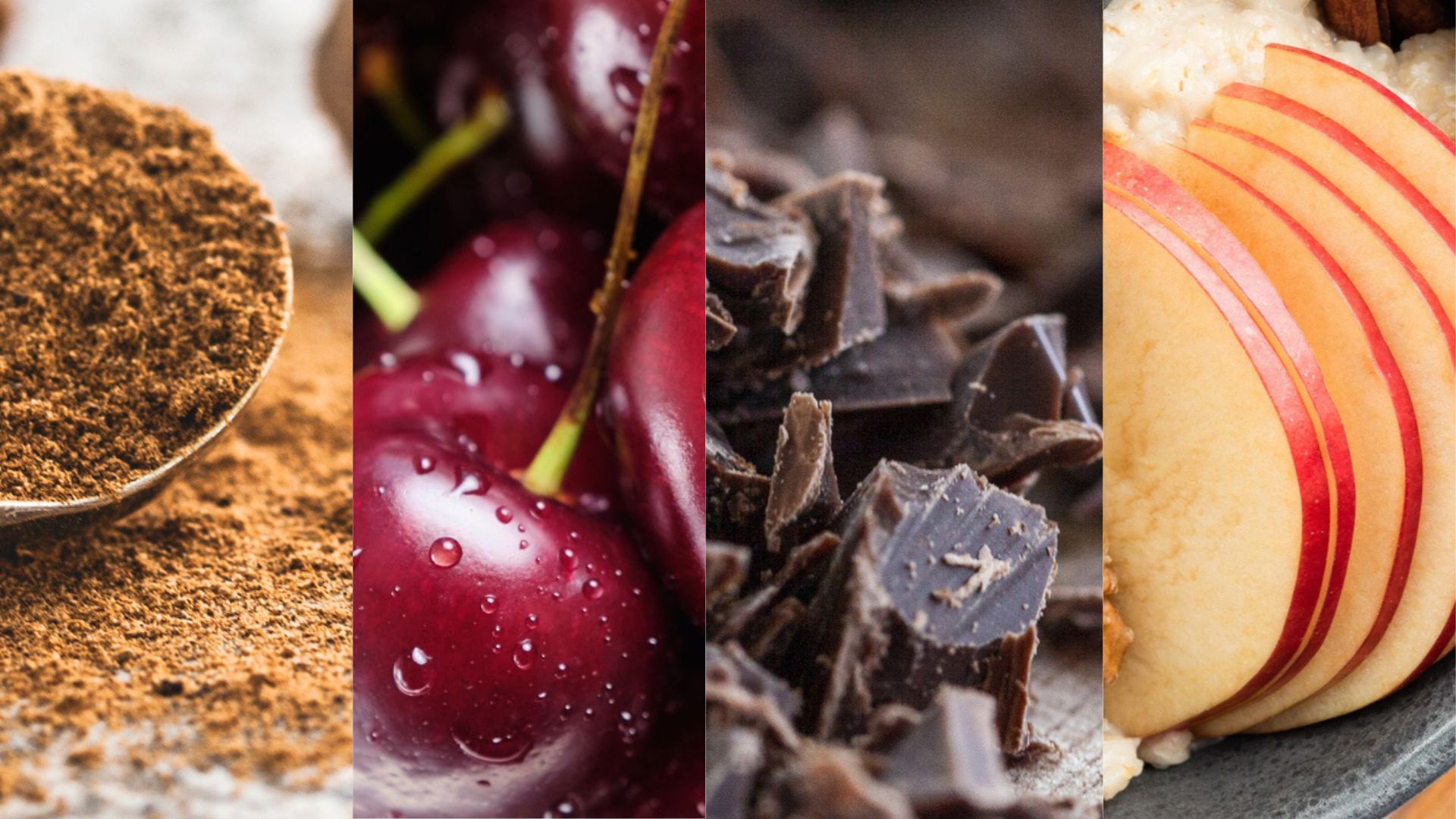
Looking for new ways to have your porridge in the morning? If you regularly eat porridge then you may be need of a few ways to spice it up.
Porridge made from oats and dairy or alternative milks has many benefits. The oats are a wholegrain, so they are rich in complex carbohydrates, protein, and fibre, all of which help the body function as it should and help you stay fuller for longer. The dairy or alternative milks are also rich in protein and healthy fats, possibly with added vitamins, making them the perfect accompaniment.
But it's easy to elevate your morning porridge or overnight oats with a selection of sweet or savoury toppings. From the best kinds of fruit to add to your porridge to unexpected flavours to explore, here are a few of our favourites.
Spirulina
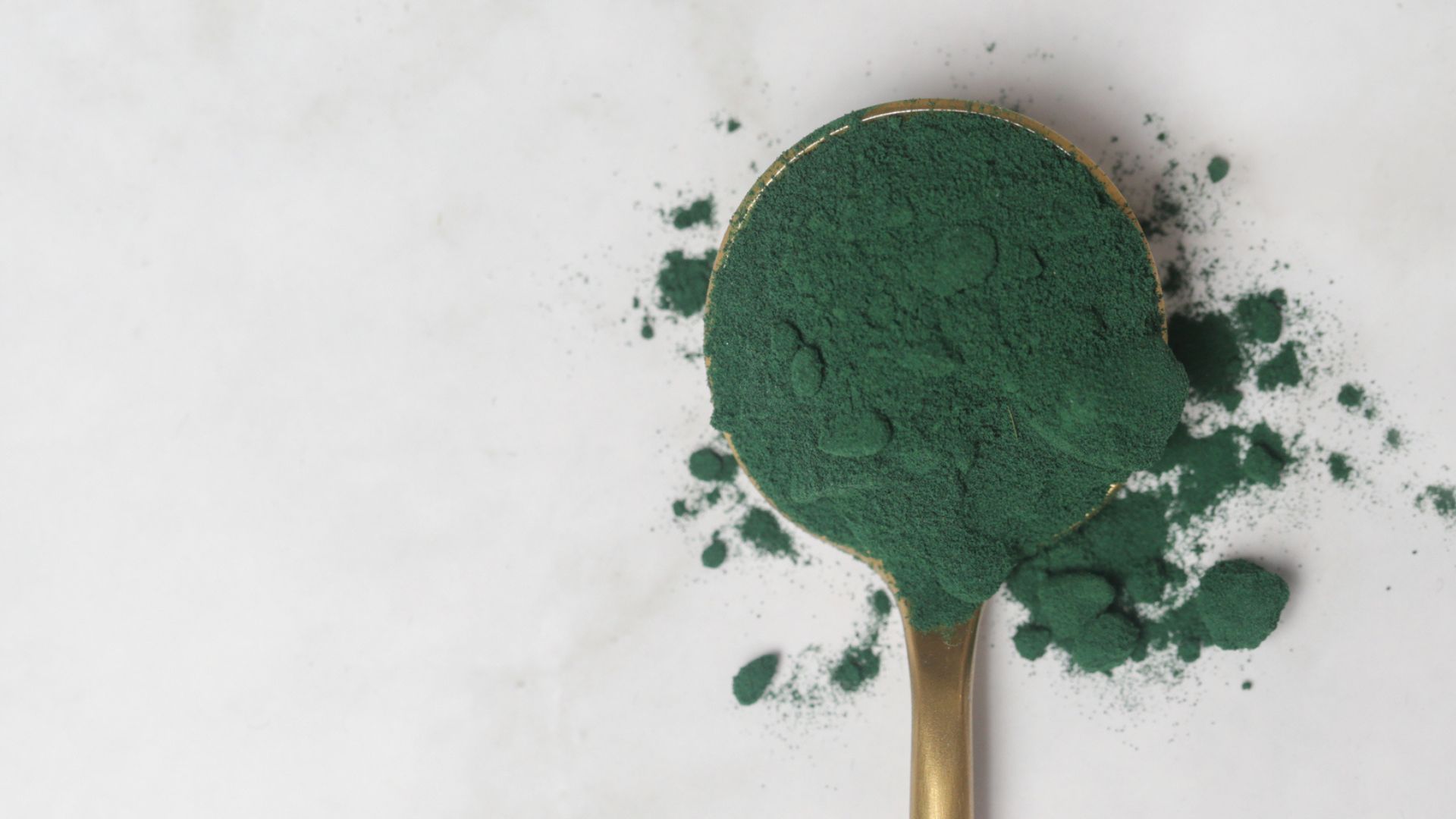
Spirulina is one of the most popular supplements in the world. It's made from an organism that grows in fresh and saltwater, and it comes from a family of blue-green algae called cyanobacteria, hence its colour.
While spirulina has been used since the Aztec times to boost energy and promote healing properties, today it's mostly used as an antioxidant, a source of protein, and a source of omega-3 and omega-5 fatty acids. Some studies also suggest it can help lower cholesterol levels and improve muscle strength and endurance.
Berries
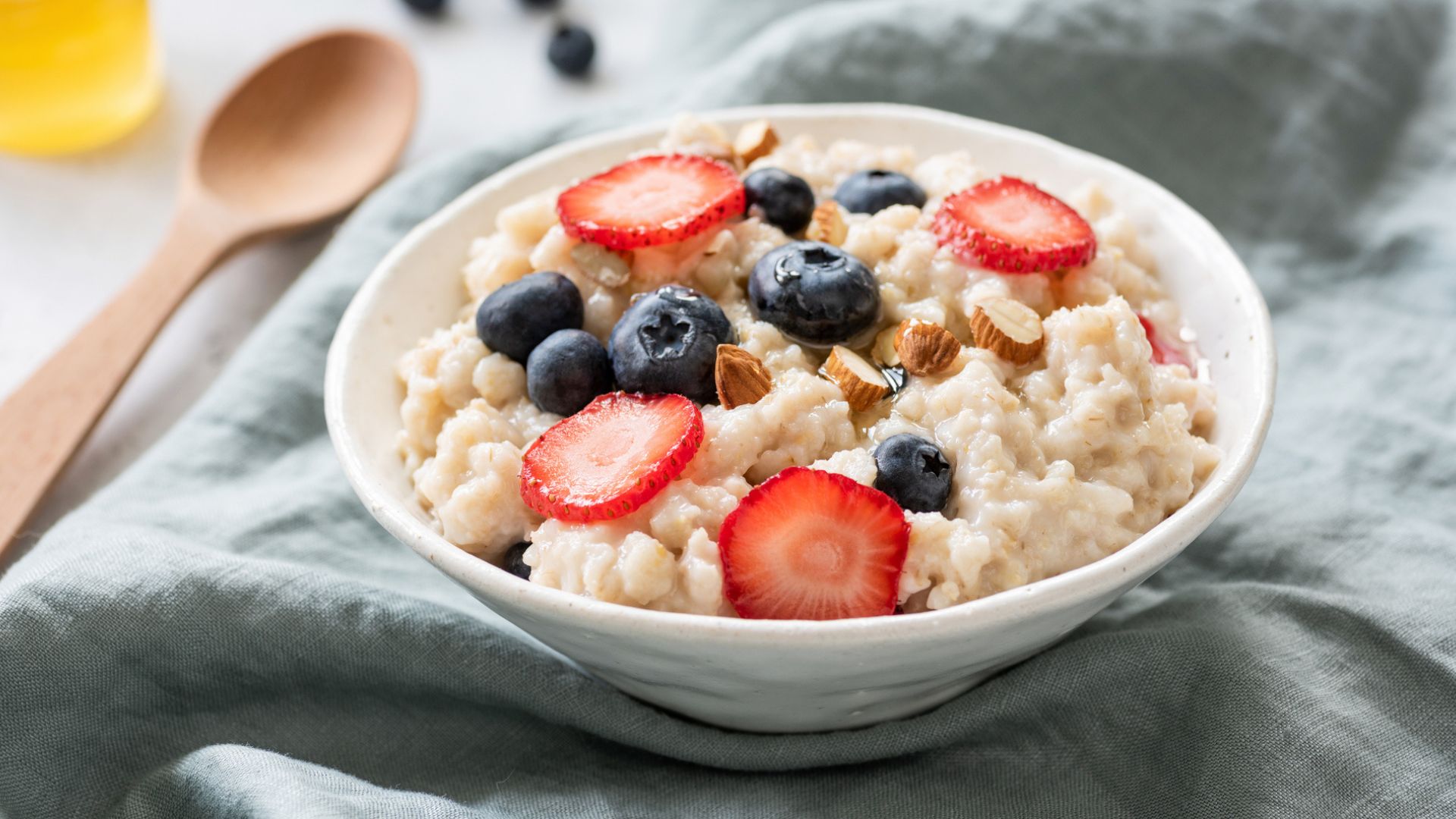
Berries - such as strawberries, raspberries, blueberries, and blackberries - are one of the best accompaniments to your porridge.
Rich in fibre, vitamin C, vitamin K, and various antioxidants, these small fruits are packed with nutrients to support almost all kinds of diets. Fibre is also one of the most filling nutrients, meaning you'll stay fuller for more of the morning.
Sprinkle them onto the top of your porridge when it's cooked or combine in a bowl with your oats and milk when cooking for more of a smoothie bowl texture.
Apple
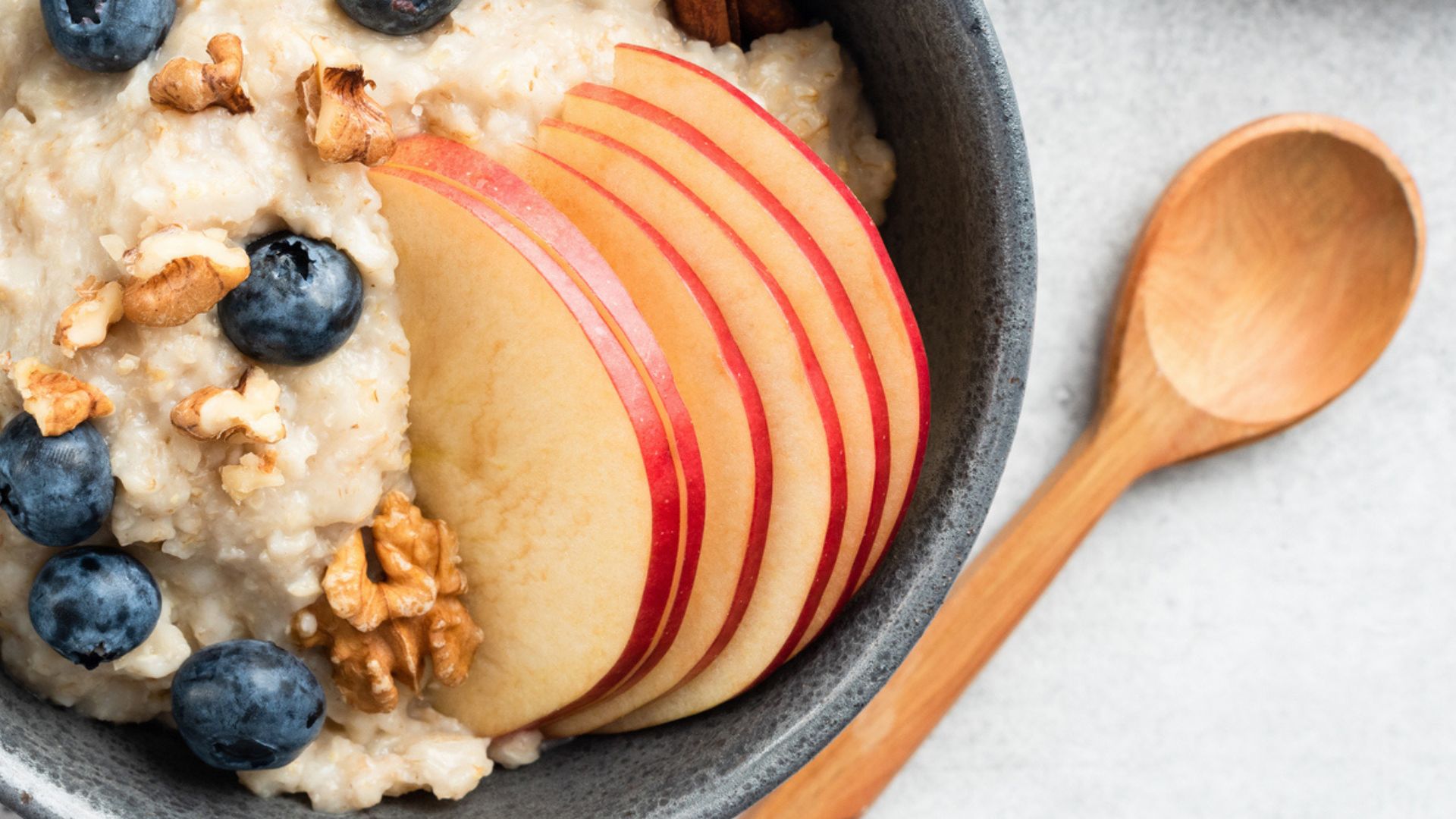
The saying goes: "An apple a day keeps the doctor away" - but it's (almost) true. Both green and red apples offer many health benefits.
When it comes to all-important gut health, studies have shown that a soluble fibre in apples called pectin may help to regulate the beneficial gut bacteria, helping it to thrive.
Slice your apple and place the pieces at the bottom of your bowl before pouring the porridge over the top - or layer the pieces on top to ensure the apples retain their crunch.
Banana
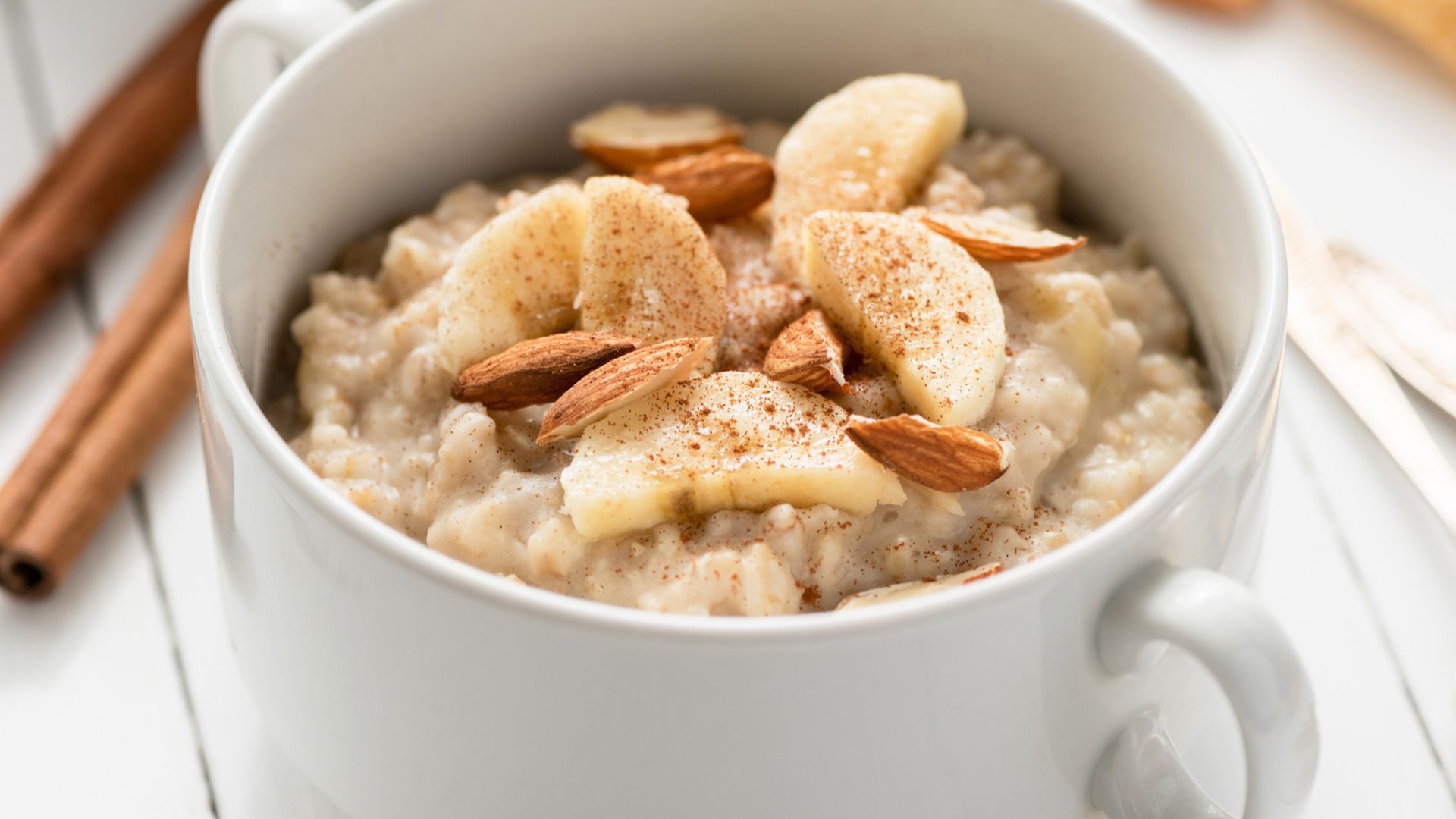
Bananas are one of the best toppings for porridge as they are rich in fibre, which can help to support heart and digestive health, potentially cut the risk of type 2 diabetes, and limit the risk of some types of cancer. One standard, medium-sized banana offers 3g of fibre, out of the 22g adults are advised to eat.
They are also a great source of carbohydrates - the body's primary food source - and simple sugars, which help to produce a quick source of energy. So, if you're having porridge for breakfast, a banana is an excellent topping choice as it'll help keep you full through the morning. For the same reason, it's one of the best foods to eat before a workout.
Chia seeds
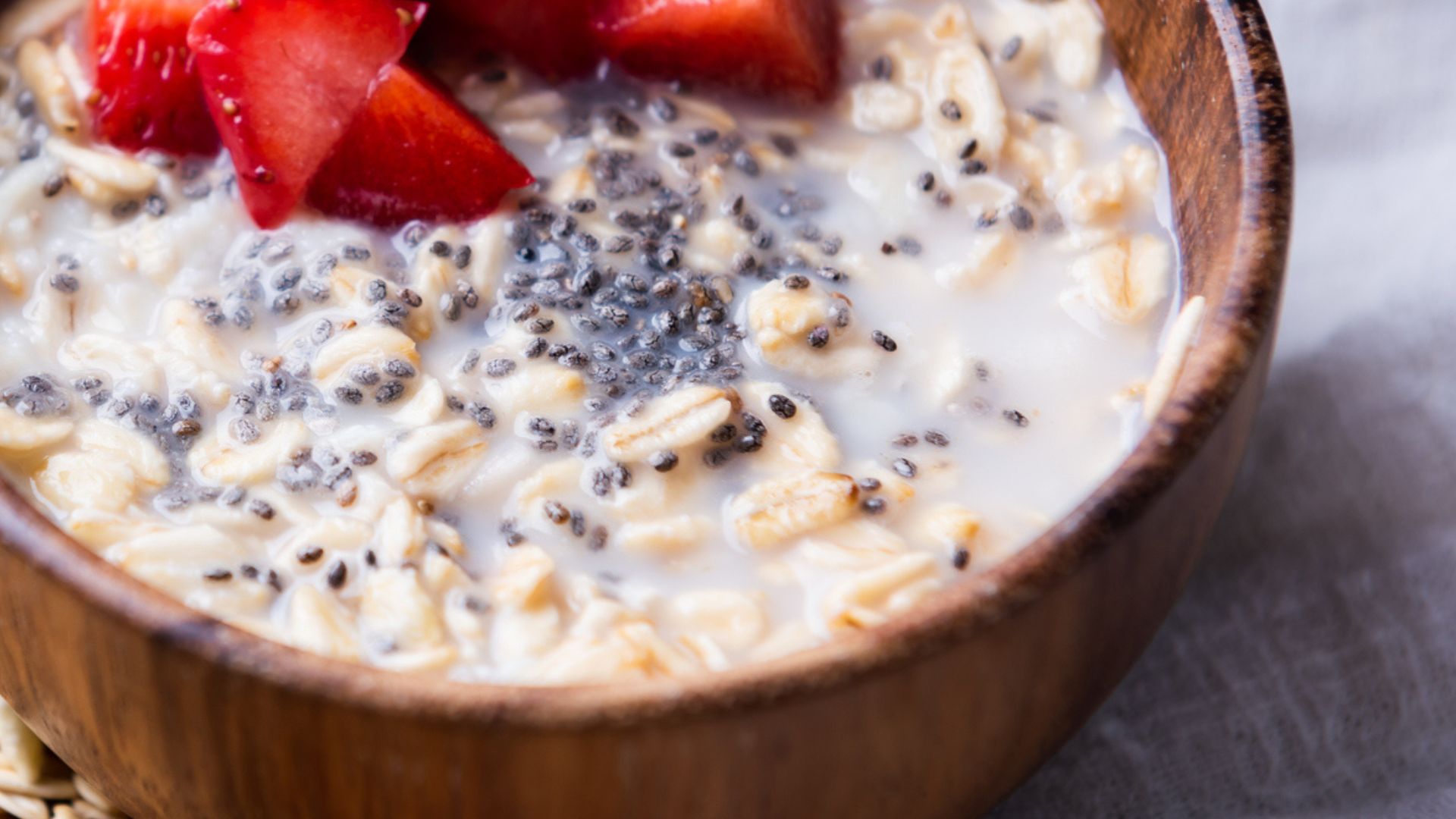
Chia seeds are very rich in fibre, one of the more satiating nutrients. Sprinkling a few grams of chia seeds onto your porridge can help you maintain a healthy digestive system and full stomach for at least a few hours.
These small seeds have also been found to contribute to lower blood pressure, lower cholesterol levels, weight loss, a lower risk of diabetes and chronic disease, and improved anxiety and depression.
Peanut butter
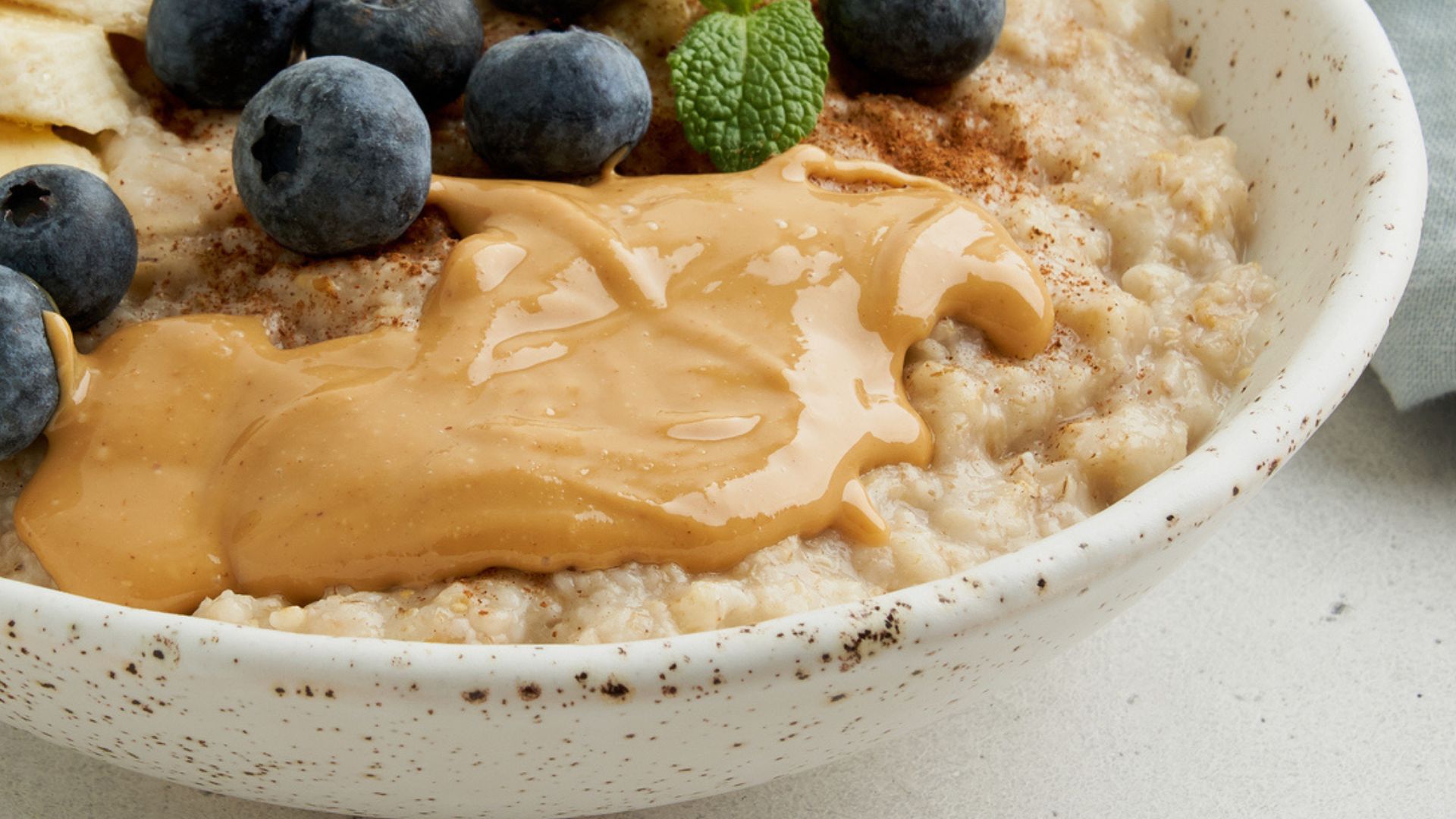
Not only is peanut butter delicious - it offers several health benefits. It's relatively rich in protein with 8g per 32g of peanut butter and can help with the maintenance of healthy cholesterol levels and blood pressure.
Also, as peanut butter tends to be sweeter than other spreads, it can help with weight management and cravings - without the sugar rush associated with other sweet foods.
It's also full of good omega-6 fatty acids, which you can only get from food, and the natural sugars in the spread promotes steady blood sugar levels, which can improve sleep.
Dried fruit
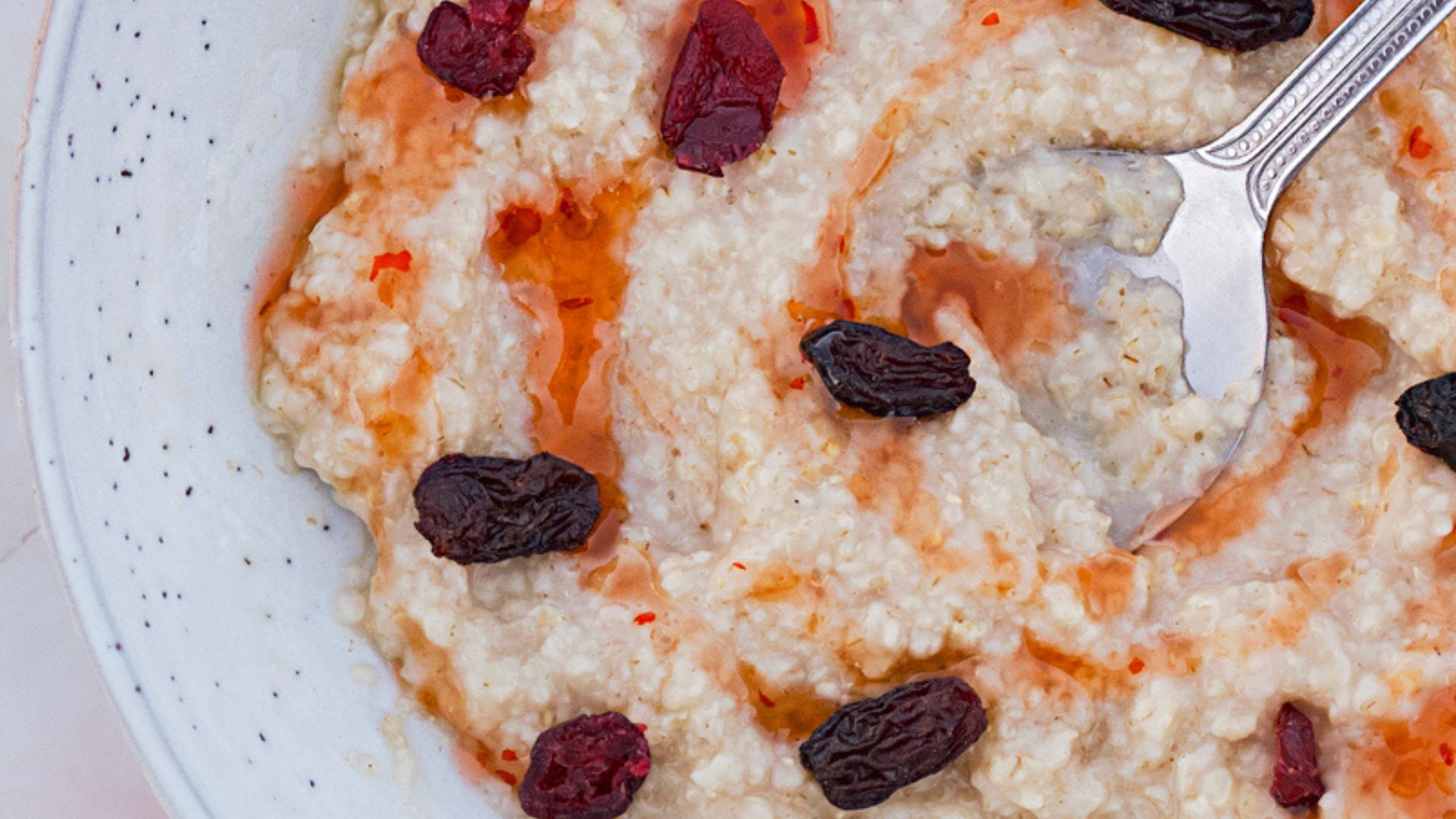
Dried fruits - like dried berries, raisins, sultanas, bananas, dates, and peaches - are rich in plant compounds that offer protective properties called antioxidants. The health benefits associated with these antioxidants include improved blood flow and a lower risk of heart disease, cancer, and type 2 diabetes when combined with other lifestyle habits.
Plus, much like other natural sources of sugar, they can help you manage sugar cravings in the morning and afternoons as they help to balance sugar levels.
Granola
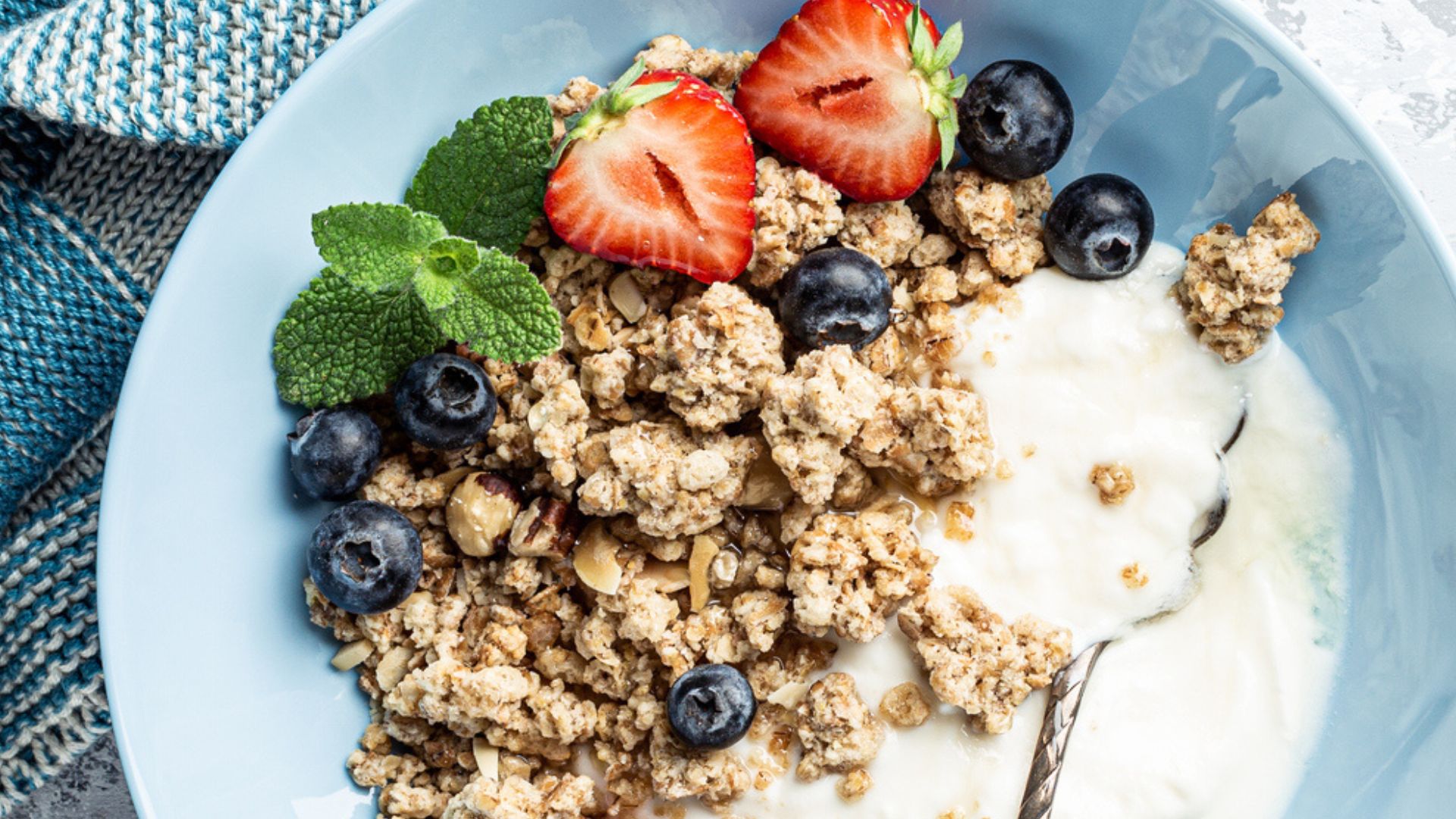
Granola contains wholegrains like oats, as well as nuts and seeds, and dried fruit, all of which contain a good number of beneficial vitamins and minerals. Having these in your diet, particularly in the morning, can help stabilise your blood sugar and prevent glucose spikes - which can make you feel tired and lethargic. You're also more likely to feel fuller for longer.
However, it's important to choose the right granola to get these benefits - or make your own. Some shop-bought granolas can be full of hidden sugars, salt, and saturated fats, which limits the benefits. Also, watch out for portion sizes - around 50g is recommended.
Cinnamon
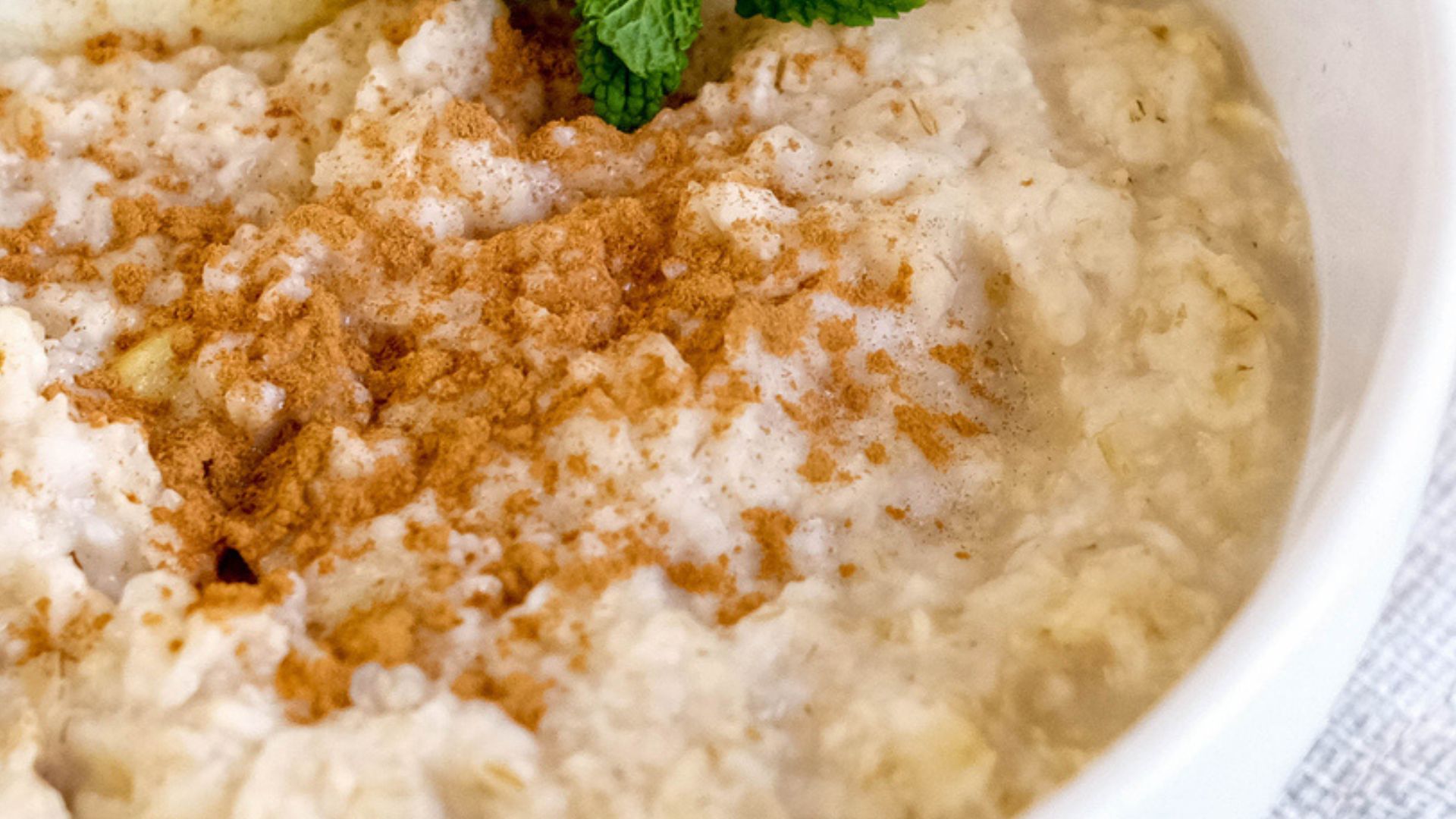
Cinnamon is a spice you've probably got tucked away in your cabinet from Christmas - but you can sprinkle it on your porridge all year round to see health benefits linked to the spice's antioxidant and anti-inflammatory properties.
Research also suggests that cinnamon may help protect the body from colds and flu, regulate blood sugar, reduce blood pressure, lower cholesterol levels, and help restore gut health balance - when combined with other diet and lifestyle habits, of course.
Seeds
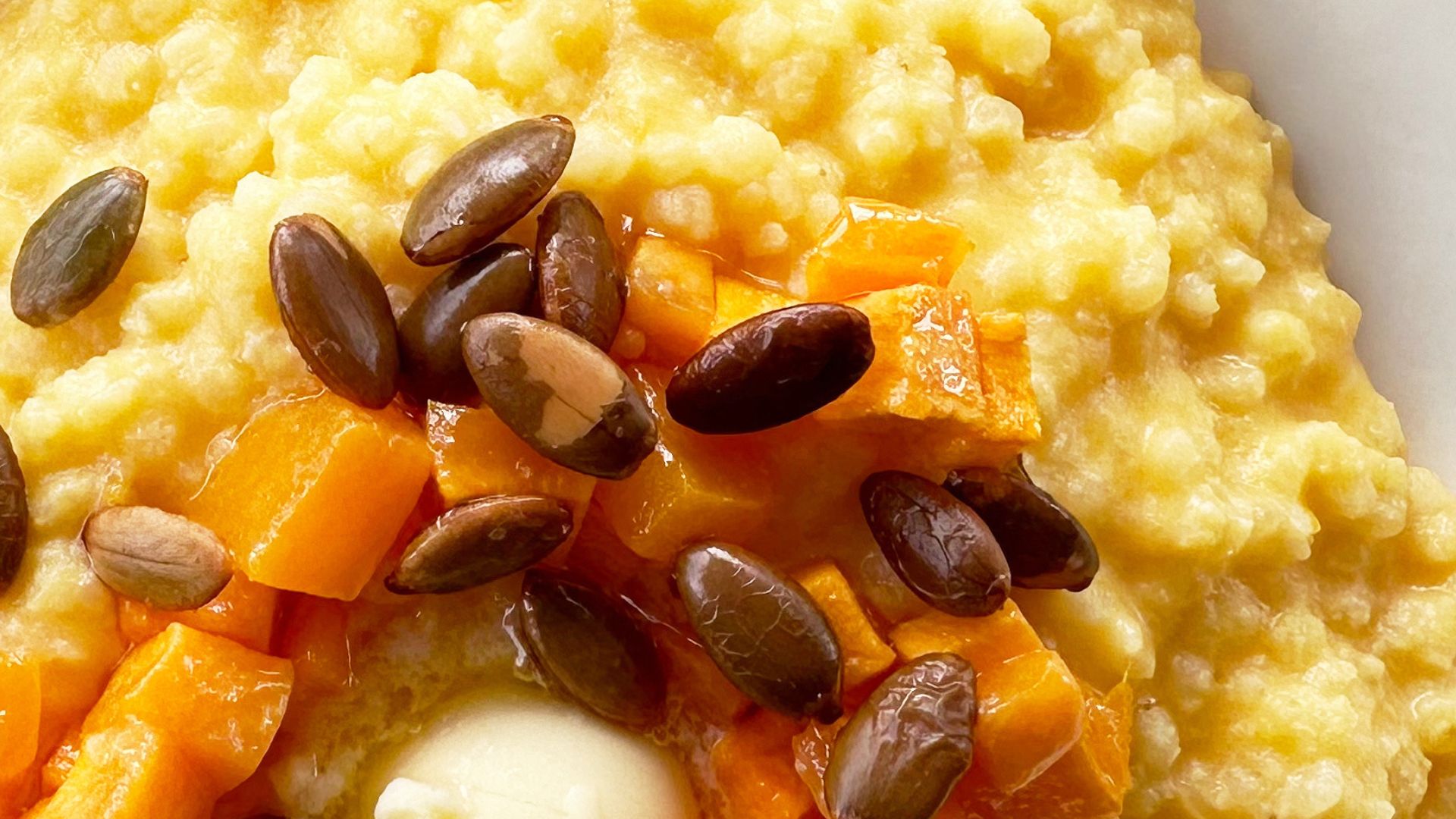
Flaxseeds, chia, hemp, sesame, and pumpkin seeds are all some of the best toppings for your porridge. Regardless of the one you choose, they are rich in fibre - an important macronutrient that helps maintain a healthy digestive system - and protein, which keeps you fuller for longer.
Some seeds, especially sesame seeds, can have particular benefits for women going through menopause as well. A study from National Taiwan Normal University, for instance, found that postmenopausal women who ate 50g of sesame seed powder every day for five weeks had significantly lower blood cholesterol levels.
Nuts
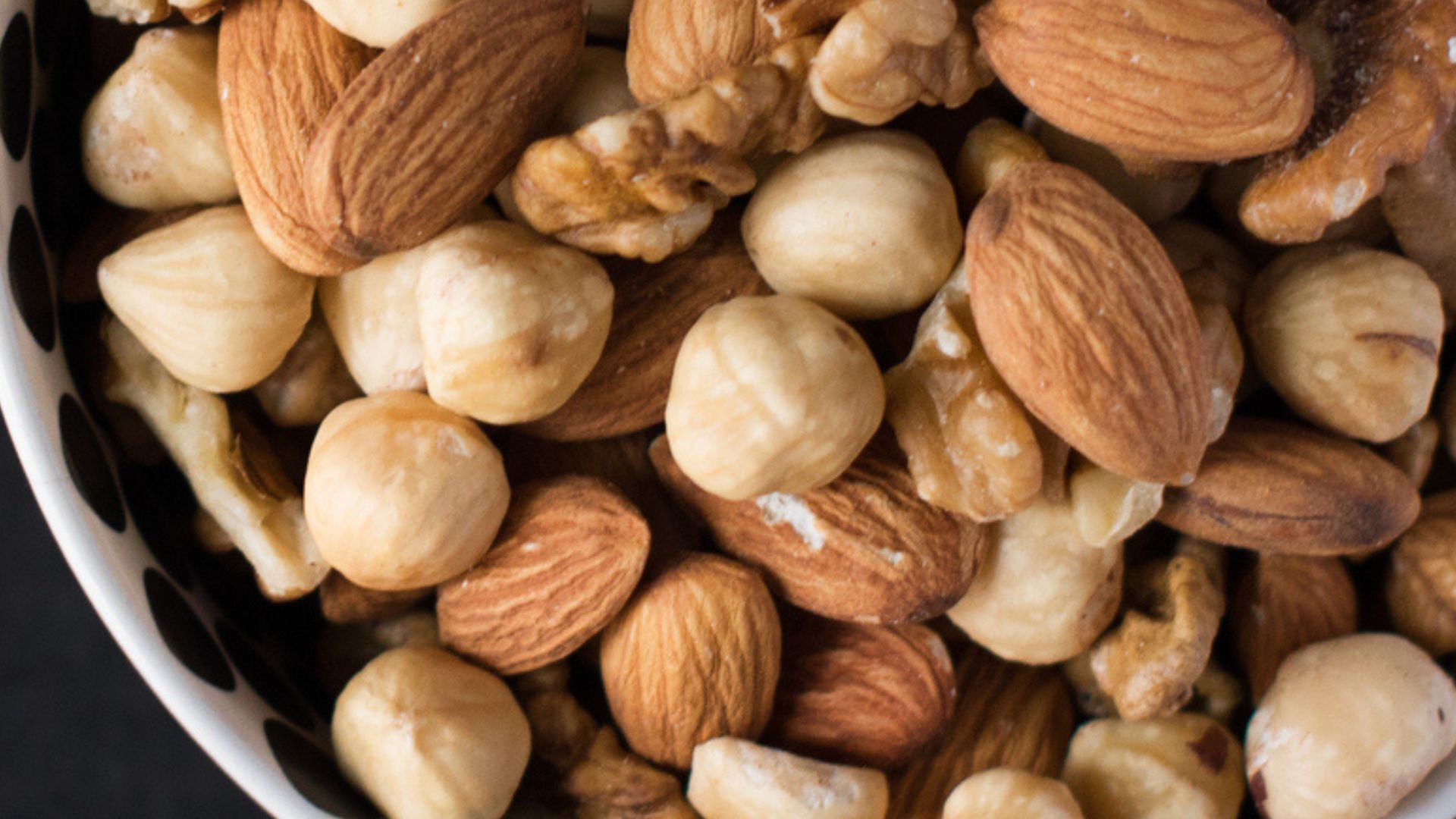
Nuts - such as almonds, cashews, pecans, pine nuts, pistachios, brazil nuts, and hazelnuts - are some of the most versatile porridge toppings. You can crush, chop, powder, or blend the nuts to include them in your breakfast or afternoon porridge snack.
Plus, nuts may help support the maintenance of a healthy gut as they are rich in plant compounds called polyphenols, and they may assist with weight management as they are rich in fats - another filling macronutrient, alongside protein and fibre.
Mango
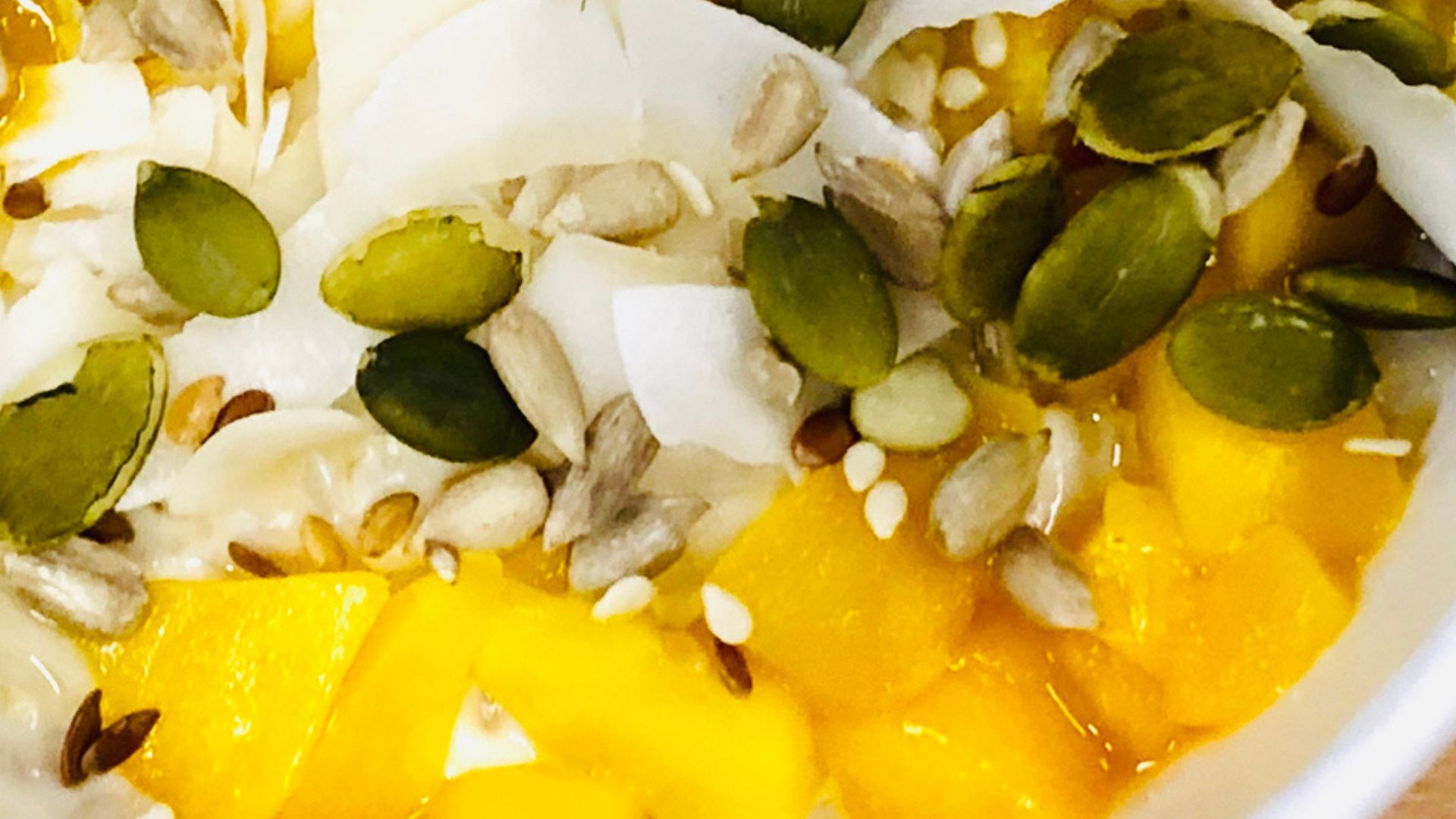
Mangos are fresh and tropical in flavour - a perfect summery porridge topping. While they may be more expensive than other fruits, they are sold in most supermarkets in the warmer months in the UK and you can find them frozen or tinned all year round.
The health benefits of mangos are almost endless too: rich in vitamin C, A, E, B6, and K; rich in copper, which helps the body make energy, connective tissues, and blood vessels; magnesium; folate; and potassium.
Dark chocolate
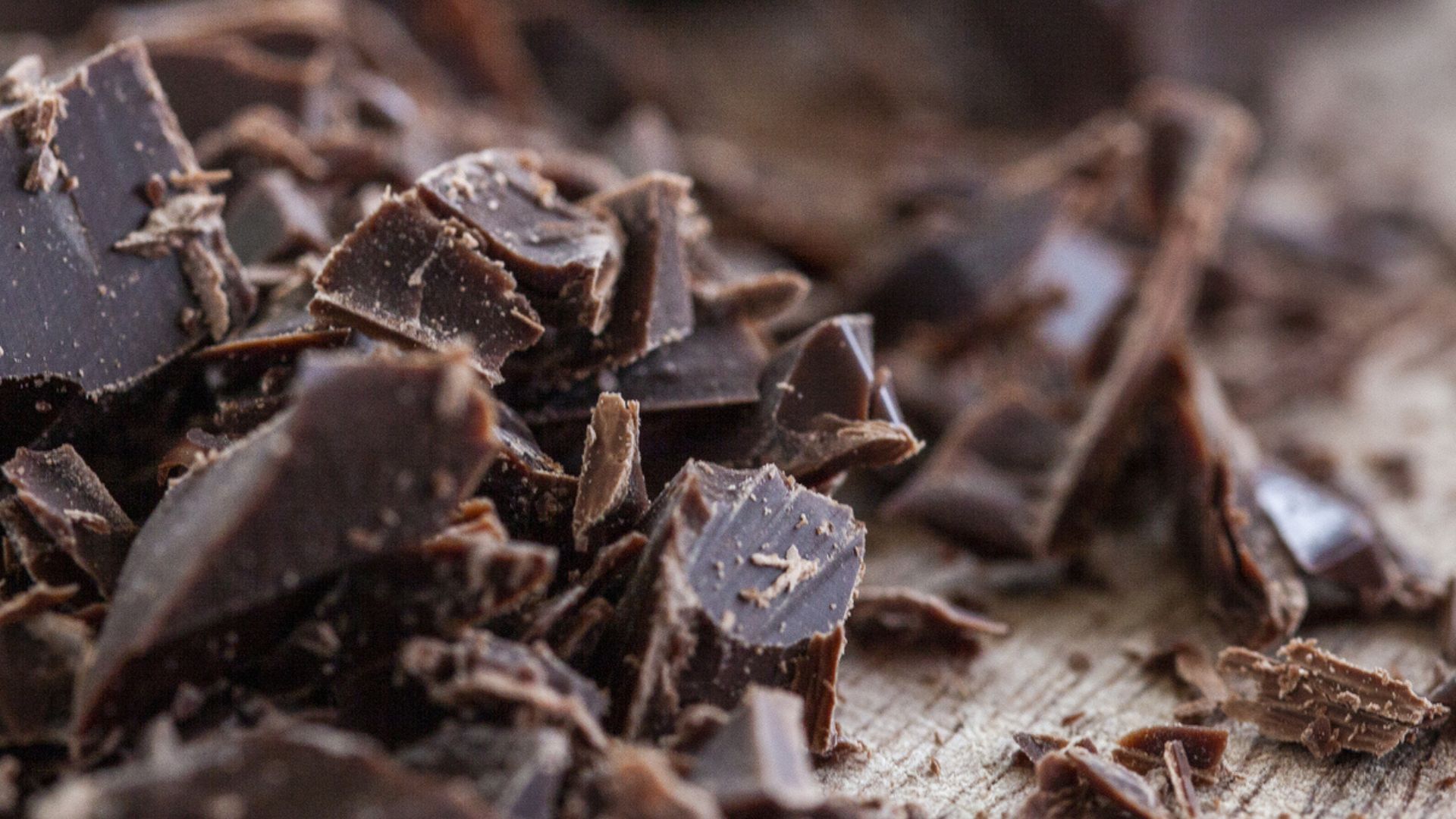
It may surprise you to know that chocolate - dark chocolate specifically - is one of the best toppings for your morning porridge. Per 100g, you'll find 11g of fibre, iron, magnesium, copper, and manganese - a type of magnesium. Dark chocolate is also rich in potassium, phosphorus, zinc and selenium.
Grate 50g across the top of your porridge for a sweet start to the day.
Jam
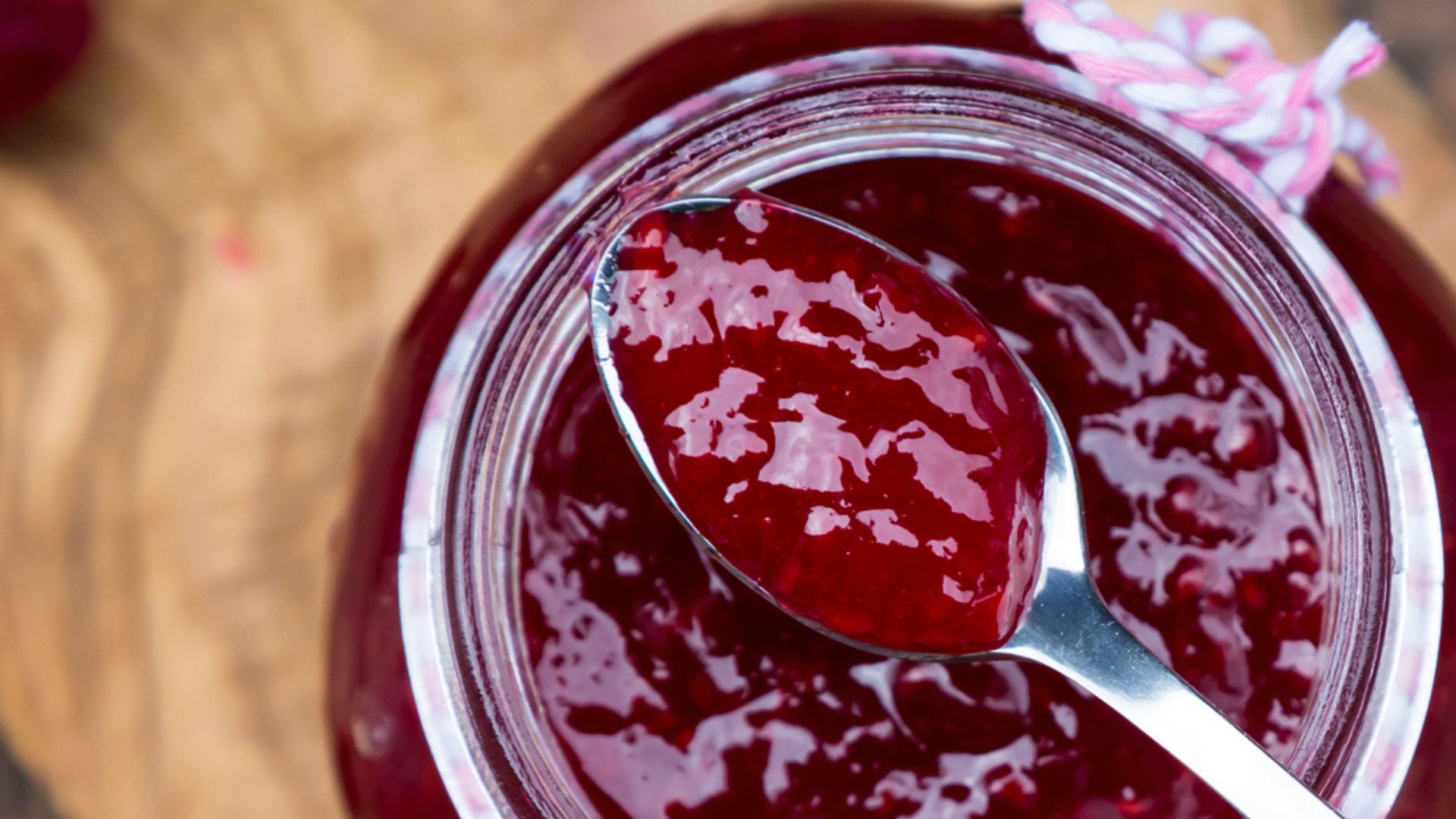
Strawberries have been found to reduce inflammation, manage blood sugar levels, and (alongside other lifestyle habits) guard against common health conditions like high cholesterol, heart disease, strokes, and diabetes. Strawberry jam is also rich in vitamin C.
When made fresh at home or without added sugars, it can help to stabilise your blood sugar levels, reducing the chance of a spike and crash after eating.
Coconut
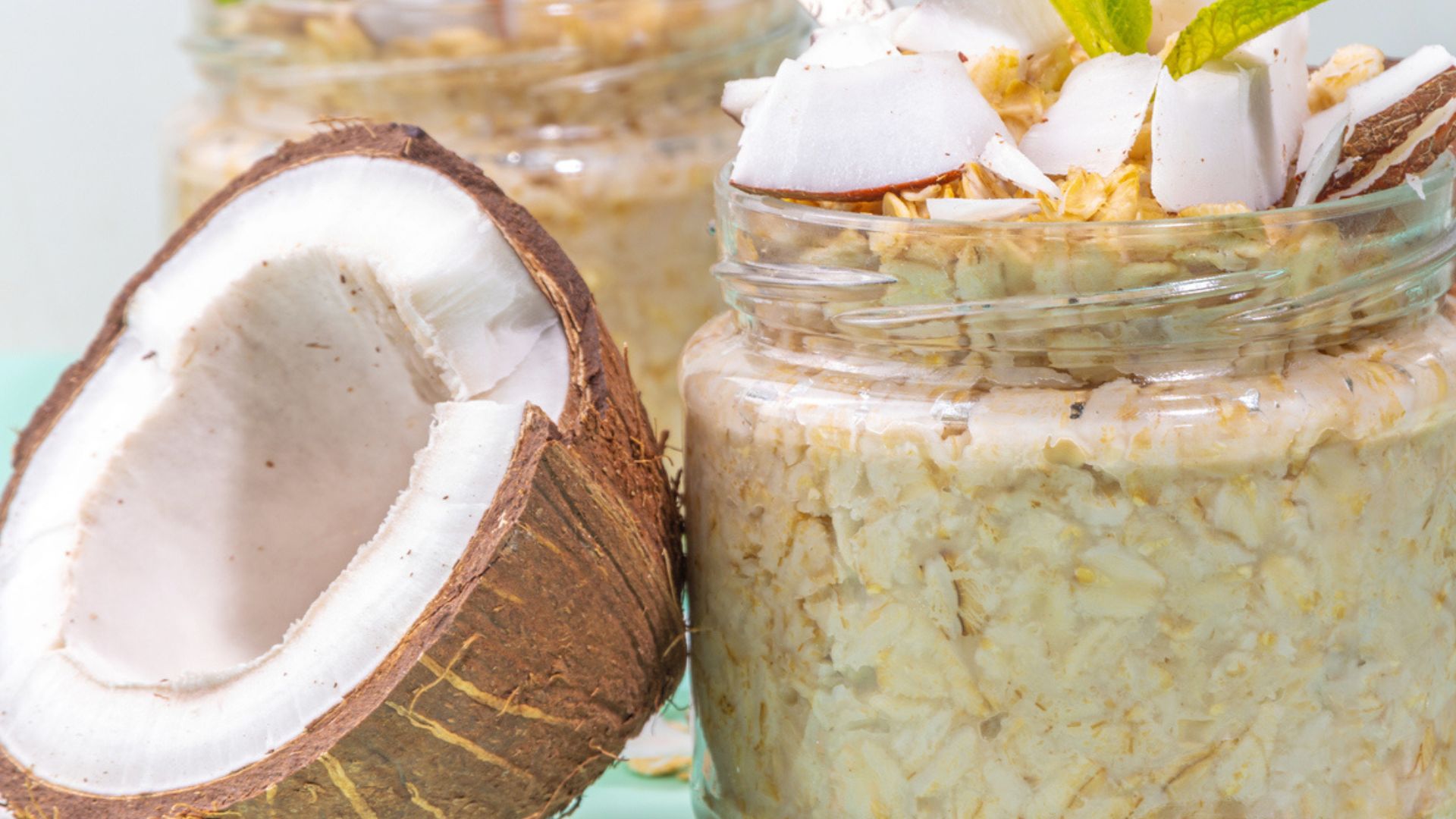
Coconut is a tropical fruit that's sold in many forms in the UK - fresh, frozen, and dried are most common though. You'll also find it in coconut waters and shop-bought smoothies. However, dried coconut is best if you're looking for a porridge topping.
Not only does the fresh flavour offer something a little different to your porridge, but coconut is also rich in antioxidants, which can help support heart health and aid digestion.
Protein powder
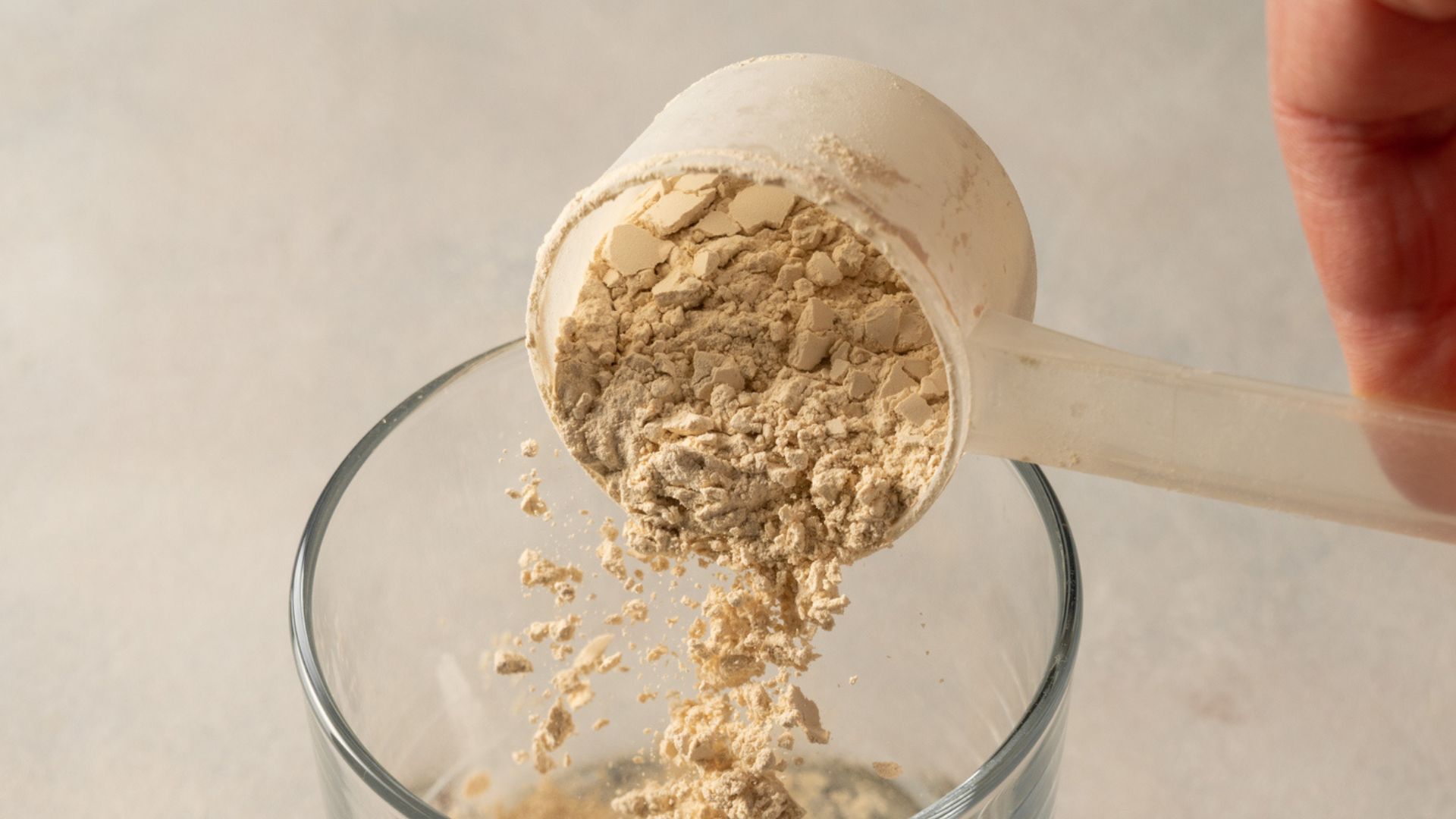
Protein powder isn't so much a topping for your porridge but something to include in with your oats and fruit in the pan. Many of the best protein powders blend well with milk in a pan and in combination with berries and/or banana.
These powders can be made with vegan protein (such as soy or pea) or dairy (whey) and come in various sweet flavours, with vanilla, chocolate, and strawberry varieties most popular.
Honey
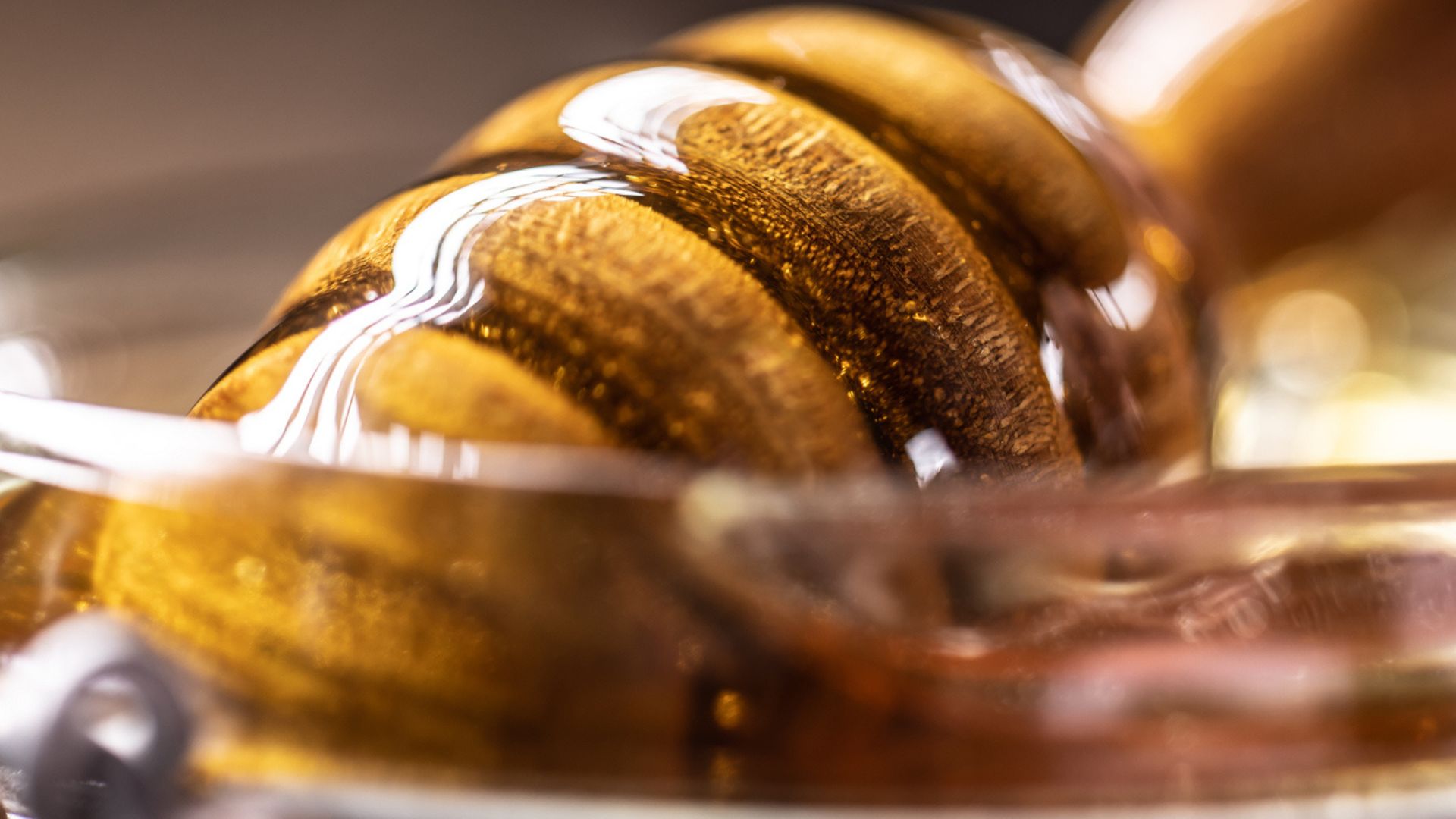
Honey is a natural sweetener that can be a great alternative to sugar and artificial sweeteners in your porridge. Drizzle honey on top of your porridge - about 15g - for the benefits.
For millennia, honey has been used as an anti-inflammatory, antioxidant, and anti-bacterial product. It's also been found to help with wound healing, relieve coughs in children, and improve cholesterol levels.
Peaches
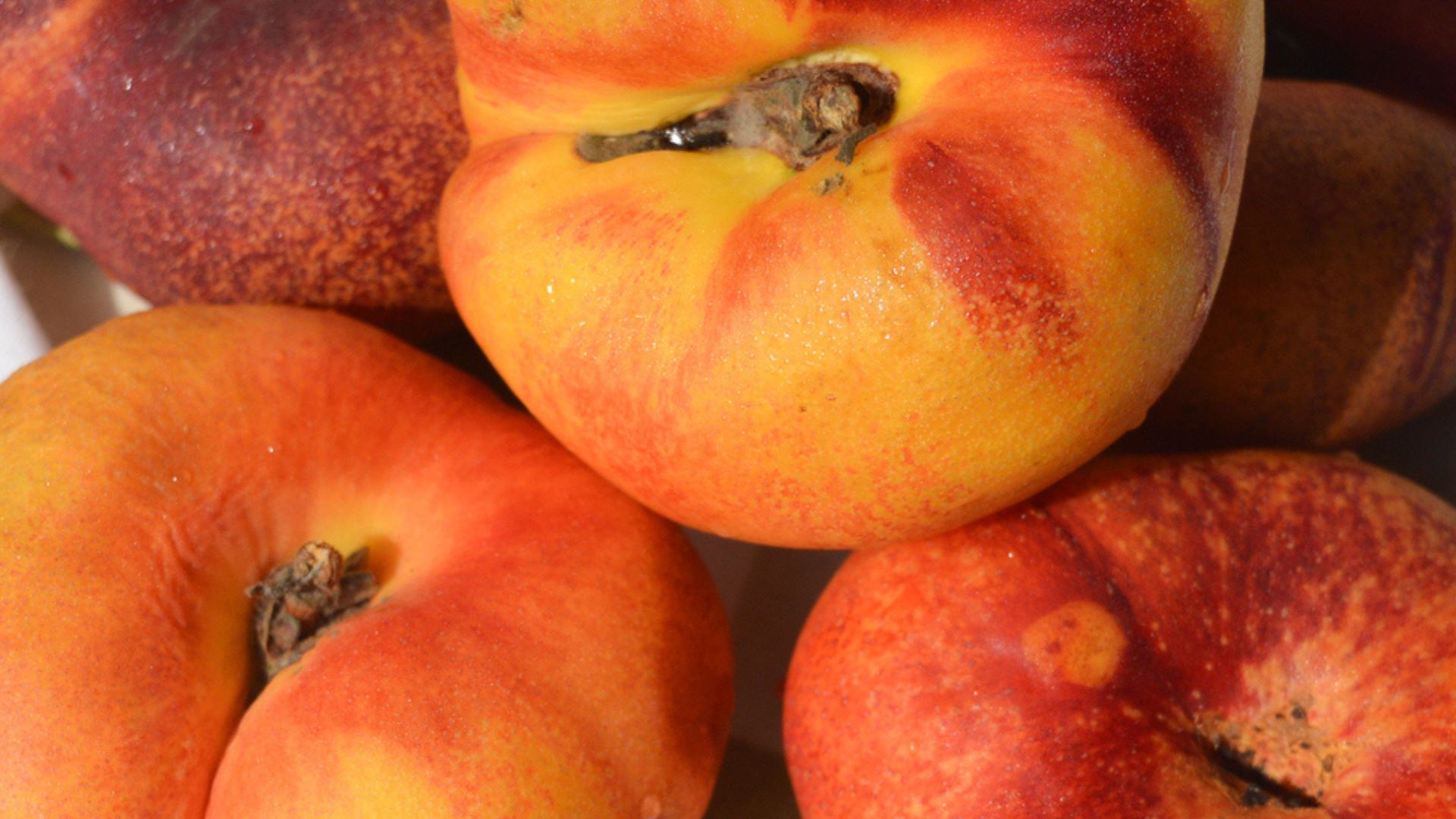
Peaches are another excellent fruit to add on top of porridge for extra vitamins, minerals, and flavour. These fruits are rich in vitamin C, A, E, and K, potassium, copper, manganese, and pectin - a type of soluble fibre that can aid with digestion.
While beneficial for the inside, peaches also offer benefits for outward appearance too - with studies suggesting that some compounds found in peaches can improve your skin's ability to retain moisture, and so improve the skin's texture.
Slice them up and put them over your porridge with a drizzle of honey and a scattering of seeds for a winning combination.
Pears
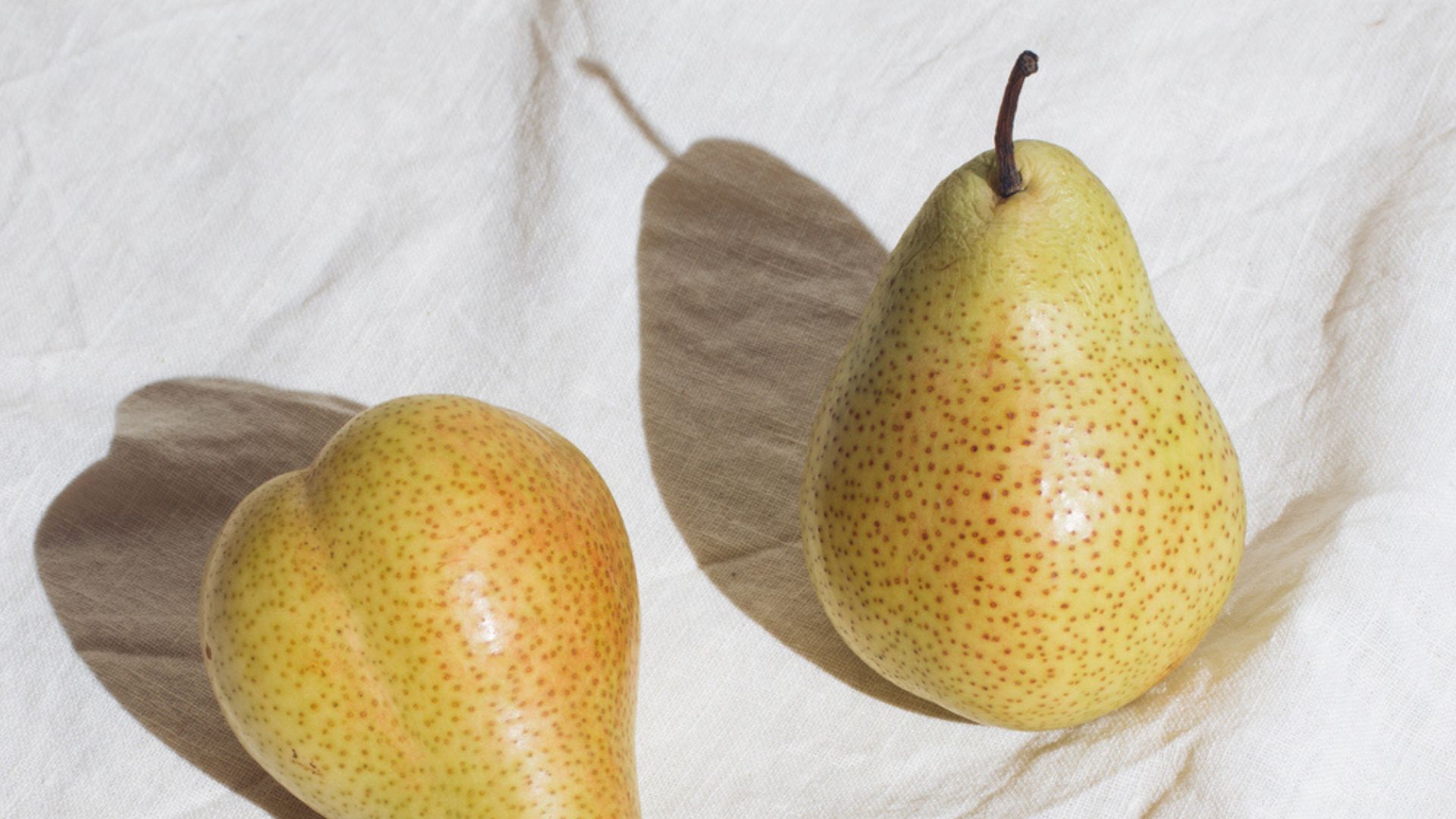
Pears are a great alternative to apples for a porridge topping. While low in protein, they have a good amount of carbohydrates, the body's primary food source, and fibre, for a healthy digestive system.
They also contain a good amount of vitamin C, vitamin K, potassium, and copper, all of which are essential for maintaining a healthy mind and body. But pears are also made of 80% water so they are one of the best foods to eat during a heatwave as well and they can help prevent dehydration.
Tahini
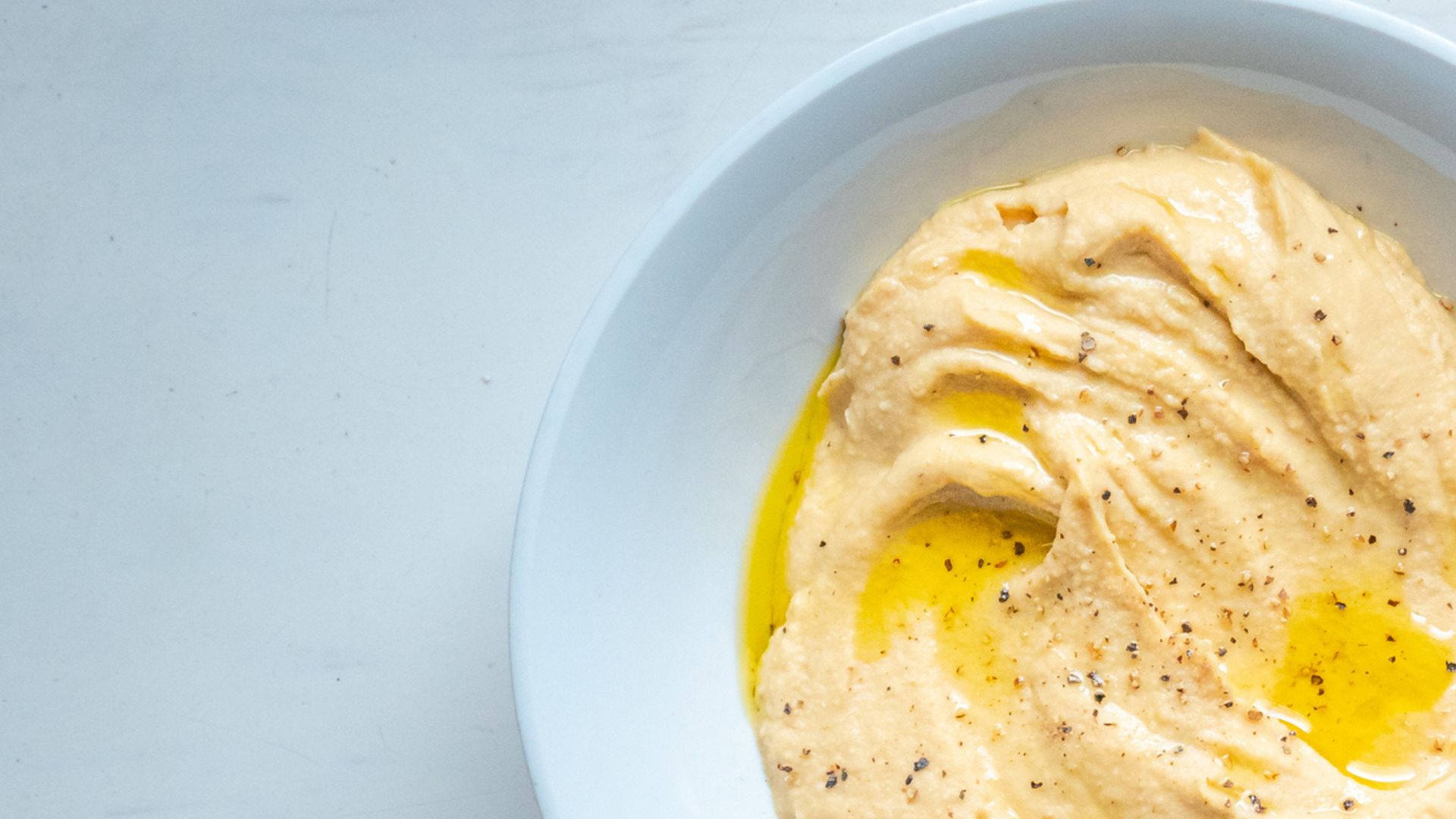
Tahini is a paste made of ground and toasted sesame seeds. Although it's most commonly used as an ingredient in hummus, its light and nutty flavour makes it a great choice for anyone who wants a savoury porridge topping.
Nutrition-wise, tahini is an excellent source of phosphorus and manganese, both of which help keep bones healthy. It's high in vitamin B1 and B6 too, which is good for helping the body produce energy throughout the day.
Vanilla paste
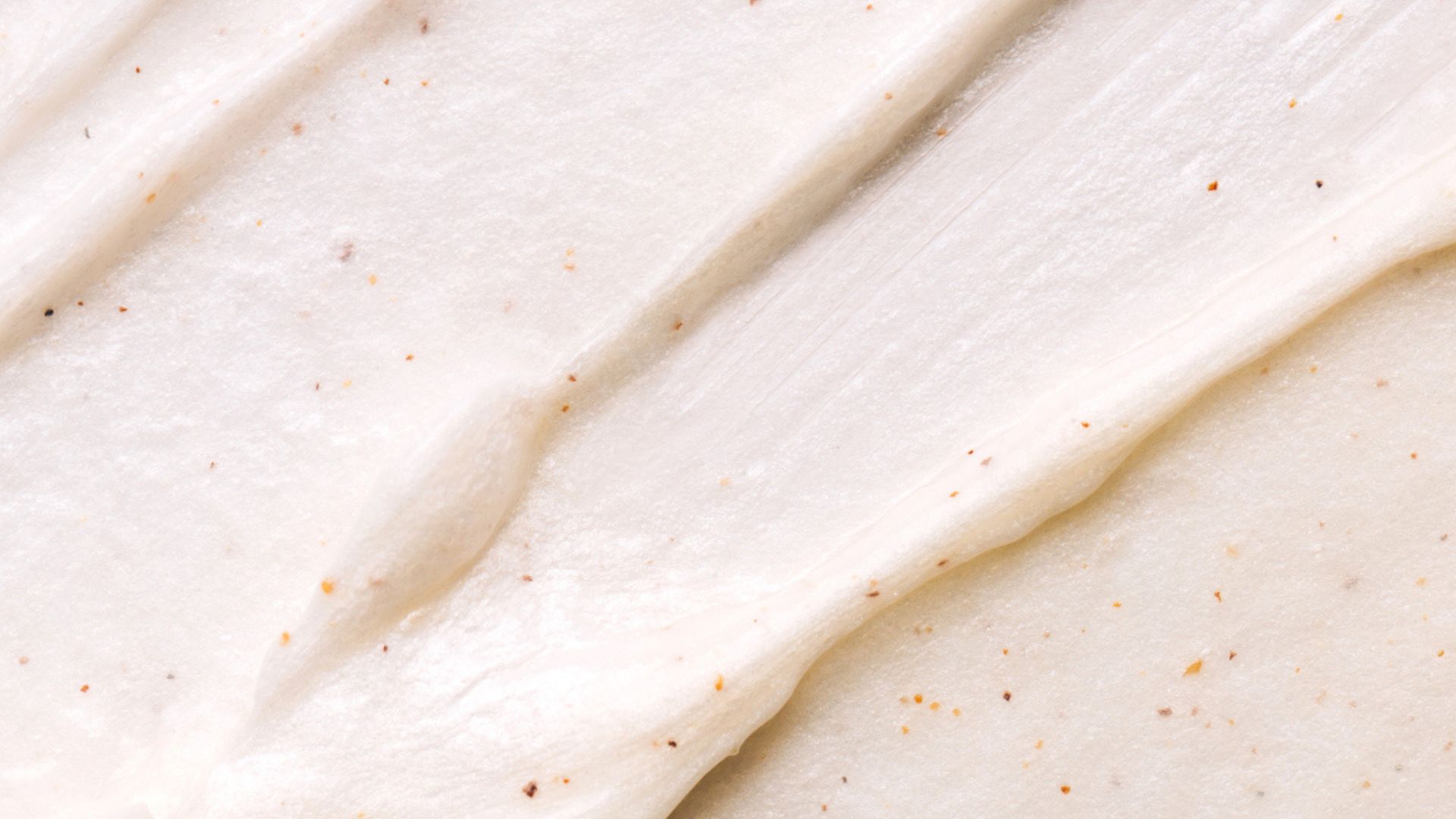
Studies have shown that vanilla, one of the most popular flavours in the world, can help improve cognitive performance and mental clarity, and reduce mental fatigue. It also has neuroprotective properties, which are compounds that can help protect the nervous system.
Vanilla flavourings are popular porridge toppings and ingredients - however, not all are made equal. Many vanilla syrups contain artificial sugars (often to make them calorie free) or added fats, which limit the benefits. Instead, opt for a pure vanilla paste where possible.
Unsoaked oats
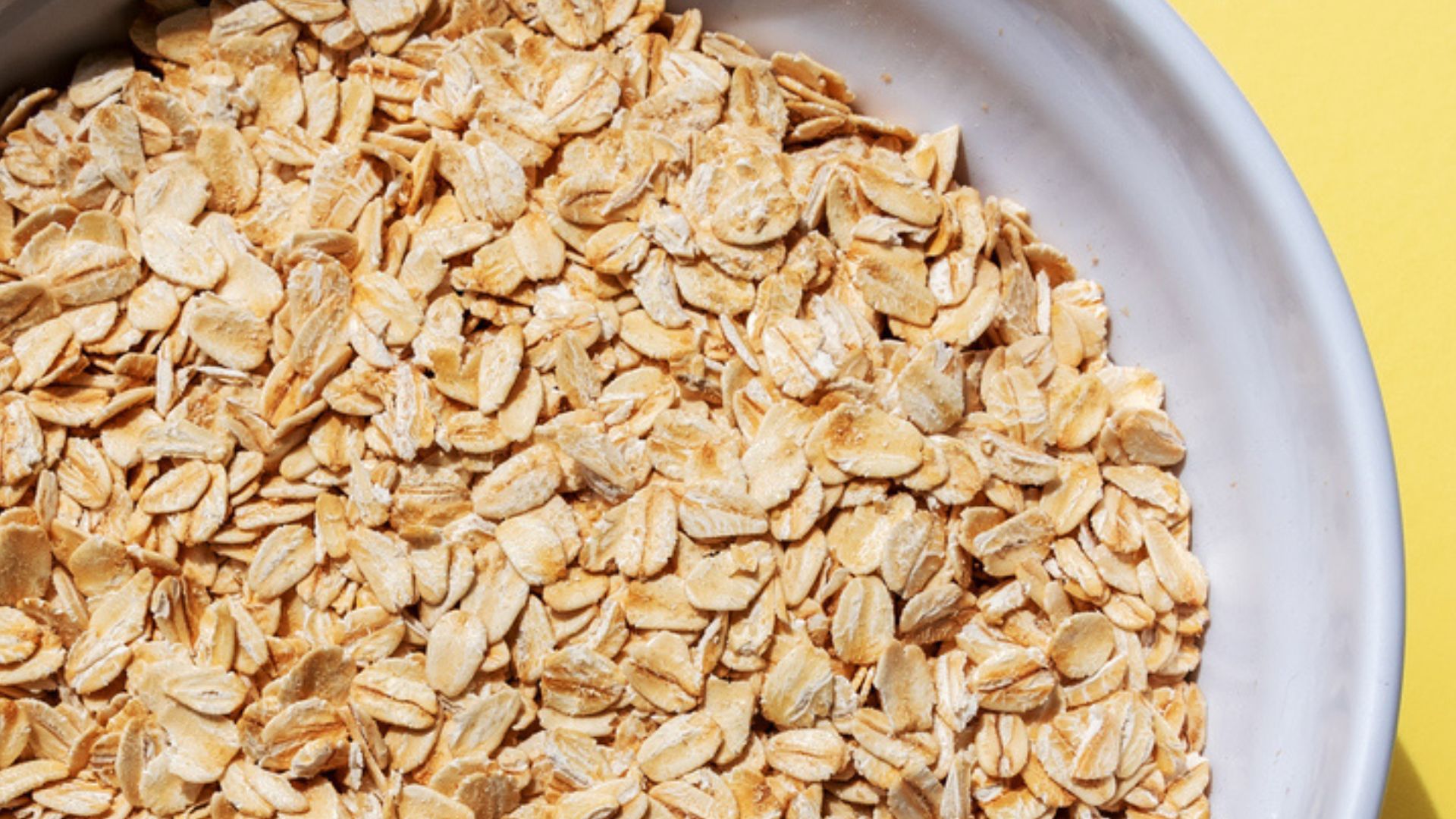
If you like a bit of crunch to your porridge toppings, why not just add a scattering of uncooked oats? As an ingredient of granola, they can provide a much needed palate cleanser among the cooked, baked, or soaked oats.
Plus, they are just as equally a good source of carbohydrates and fibre as cooked oats.
Yogurt
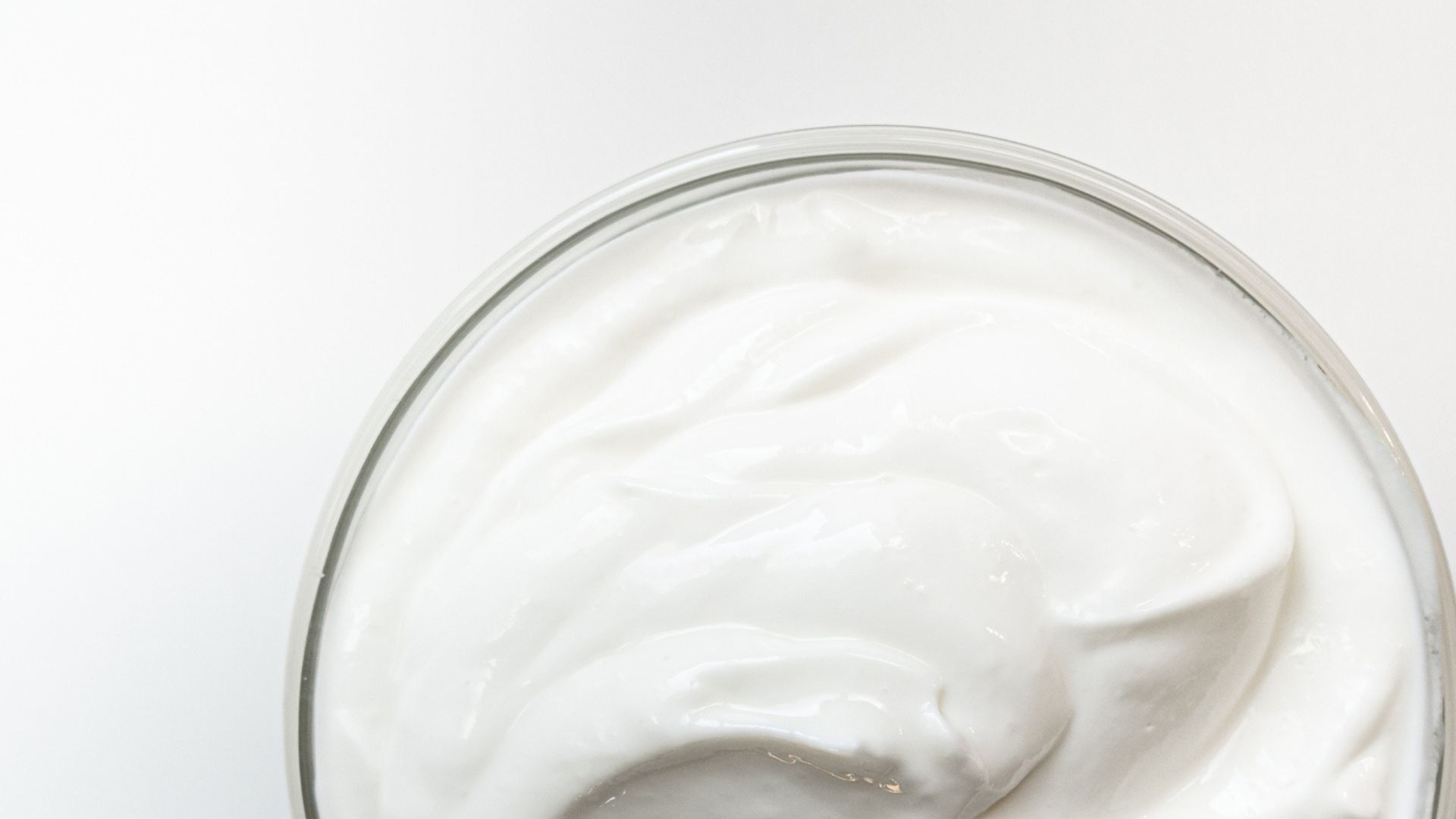
Yoghurt is rich in healthy fats and protein, making it an excellent addition to any breakfast bowl. Full-fat variations of yoghurt are also rich in calcium, phosphorus and vitamin D.
Researchers even believe that three servings of yoghurt a day can help to prevent osteoporosis - a health condition that weakens the bones and makes them fragile.
Cherries
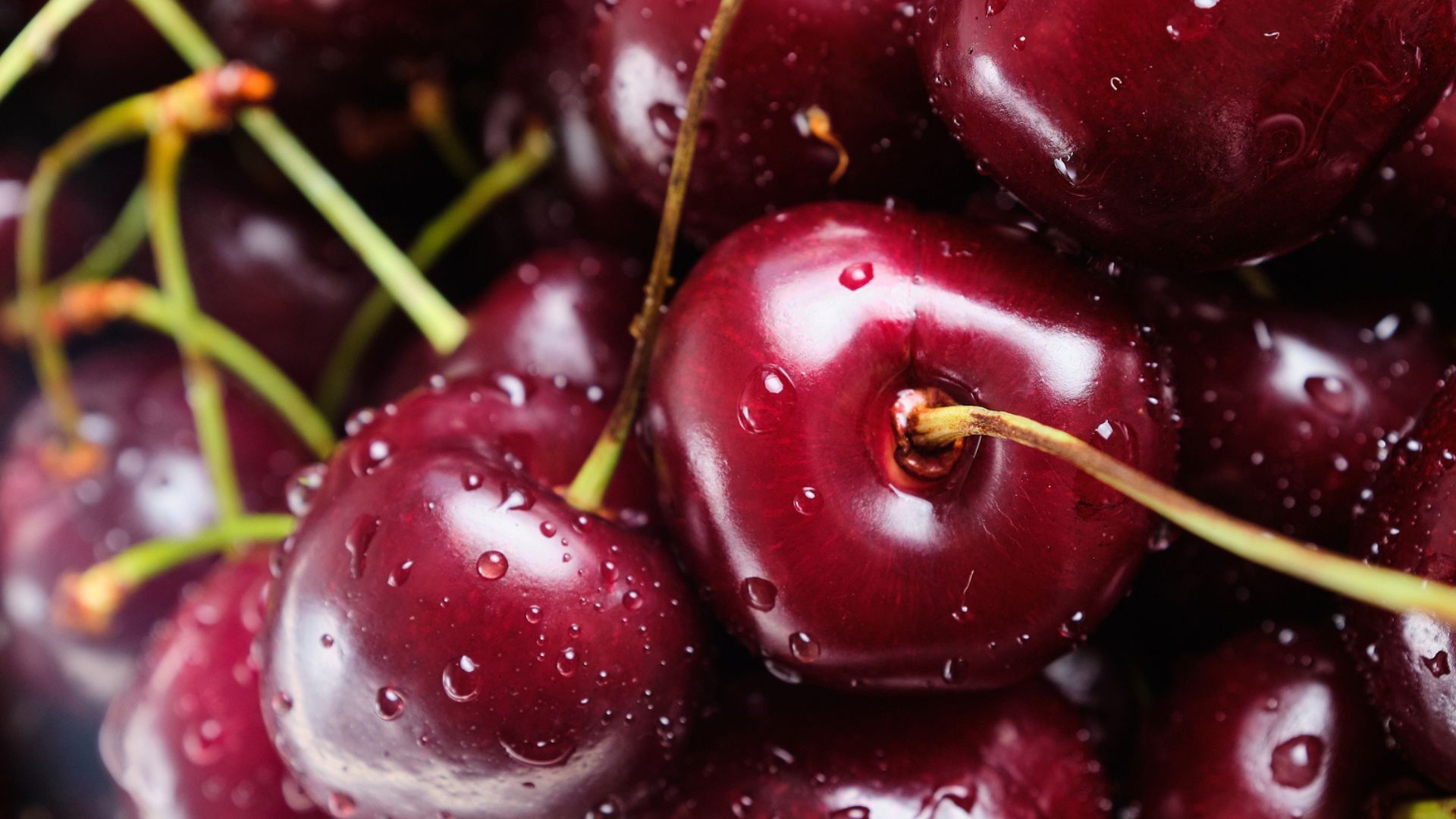
Cherries are one of the best fruits to top up your porridge with. Not only do they turn the mixture a delightful pinkish-red colour, but they are packed with loads of vitamins - including vitamins A, C, and E.
They are also rich in melatonin, a hormone that helps you sleep; serotonin, otherwise known as the 'happy hormone'; and tryptophan, the amino acid that helps secrete serotonin and help you sleep better.
Tinned apricots
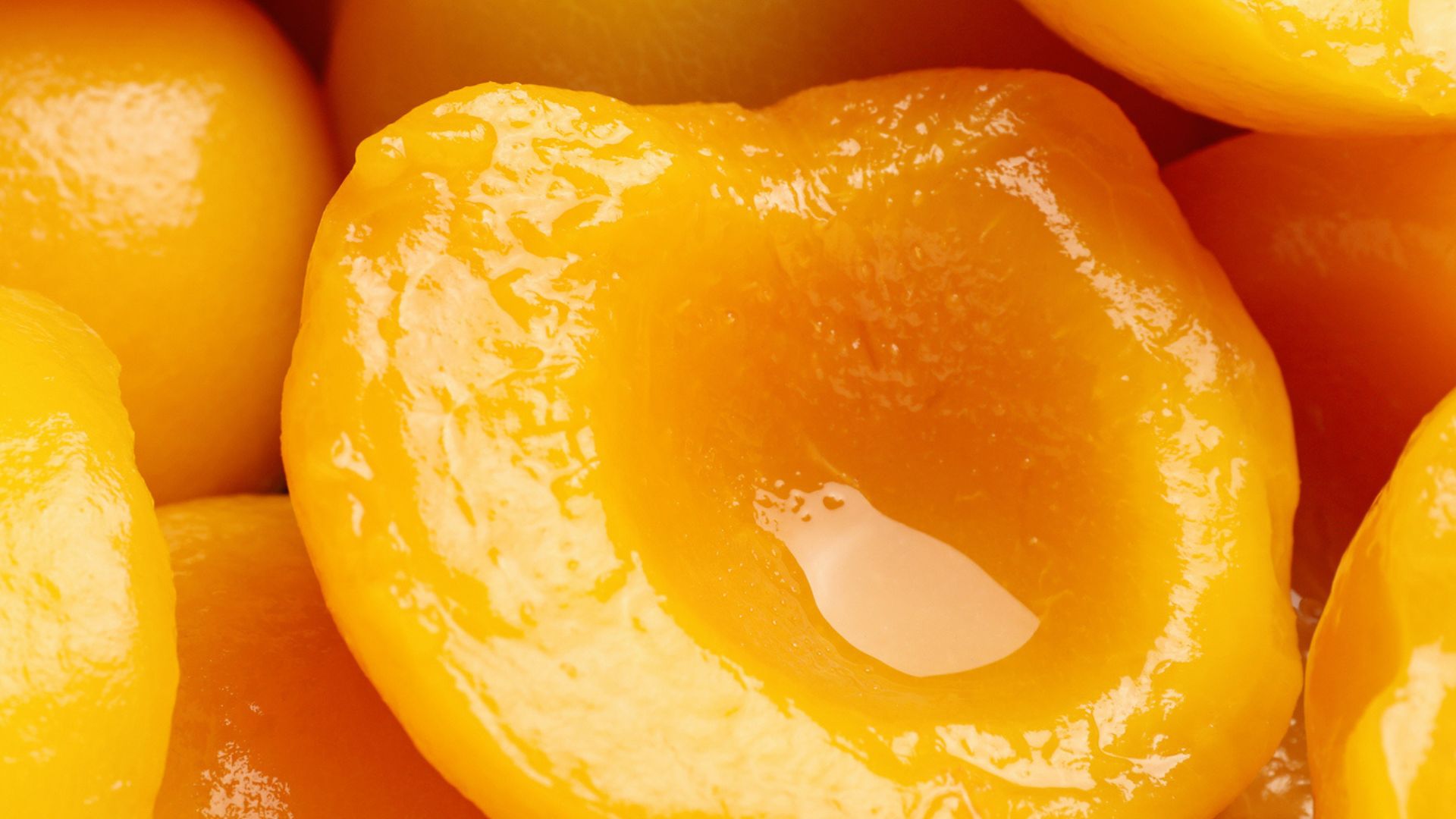
Tinned apricots are known to have double the amount of vitamin C, weight for weight, as fresh ones. They are also rich in plant compounds that can support the digestive system and help maintain a healthy digestive tract.
Apricots are also known to help the cardiovascular system by managing high blood pressure, support vision and protect eye health. They are even known to help alleviate menopause symptoms as they are rich in phytoestrogens, which can mimic the hormone oestrogen.
Dates
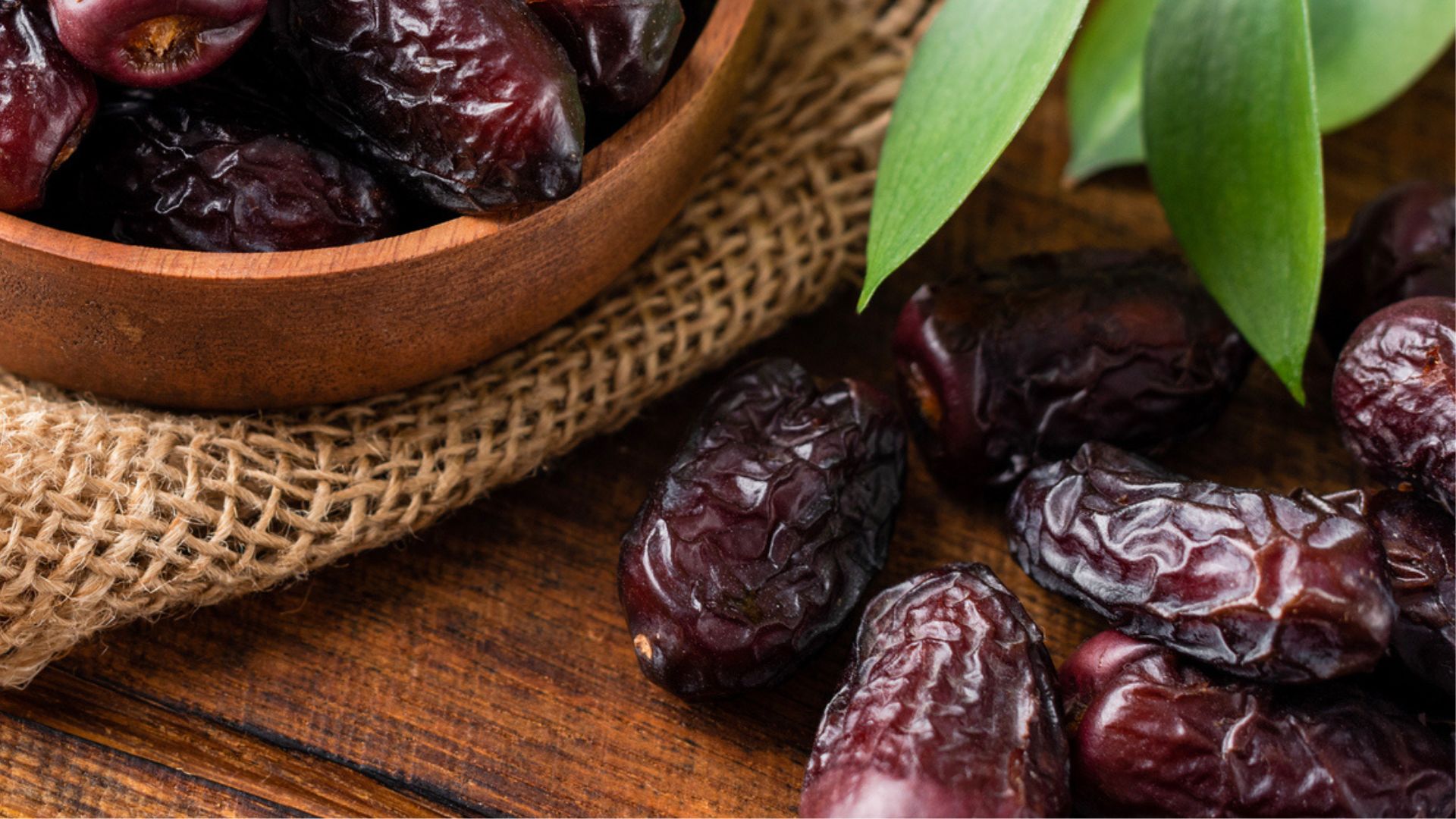
Dates are one of the most nutrient-rich fruits available. While higher in calories than others, they boast 75g of carbohydrates per 100g serving, 7g of fibre, 2g of protein, and plenty of potassium, magnesium, copper, iron, vitamin B6, and manganese.
If you're struggling to go to the toilet regularly, dates are an excellent addition to your diet. In a study by the University of Reading, 21 people who ate seven dates for 21 days found improvements in their stool frequency and had a noticeable increase in bowel movements compared to when they didn't eat them.
Raisins
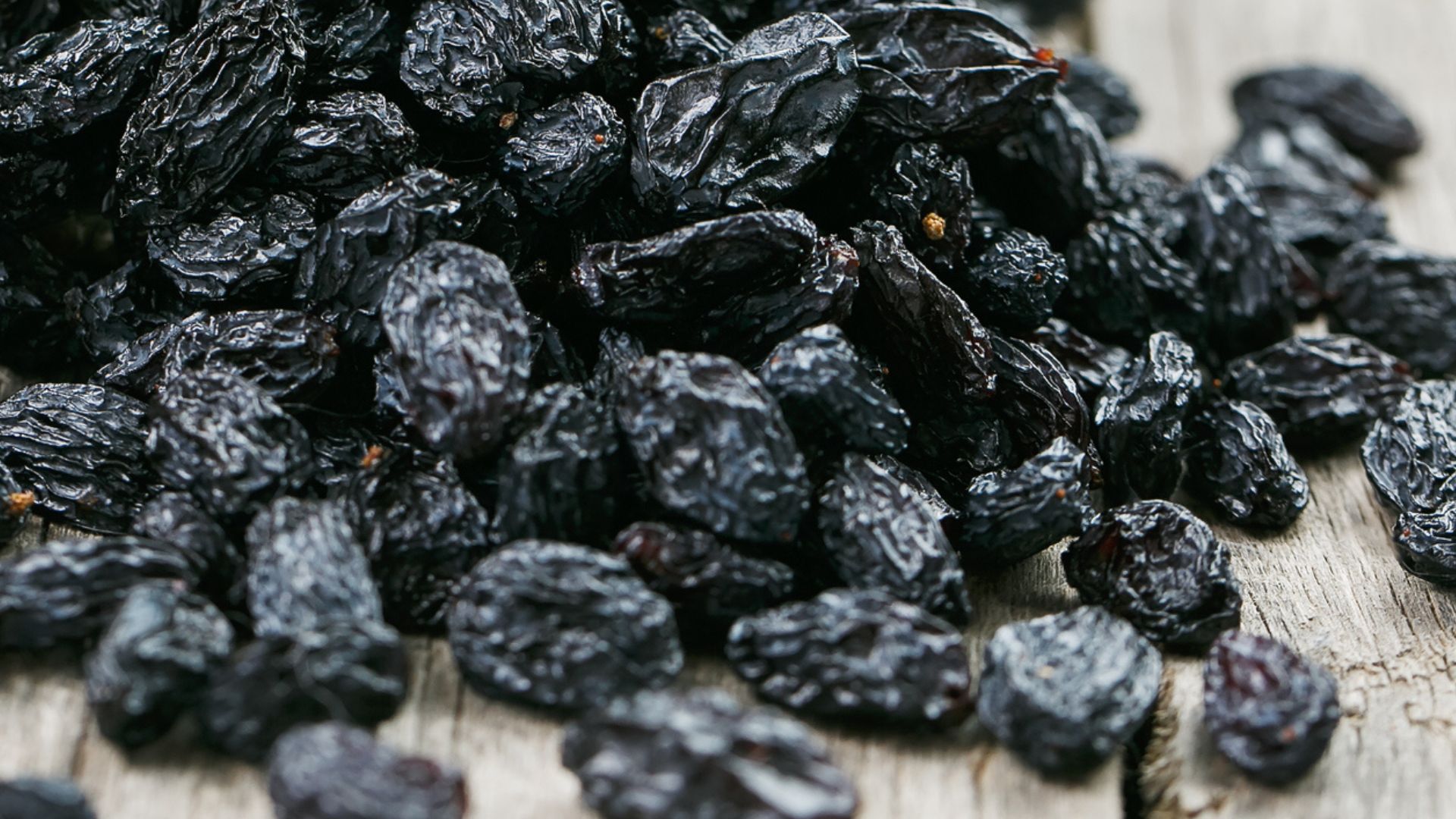
Much like dates, raisins are rich in fibre that can help with regular bowel movements and a healthy gut. But raisins are noticeably also very high in iron, an important mineral that helps to make haemoglobin - a protein in red blood cells that works to carry oxygen from the lungs to other parts of the body.
Raisins are easier to include as a porridge topping than dates as well, being smaller in size, without any need to cut or blend them beforehand.
Pomegranate seeds
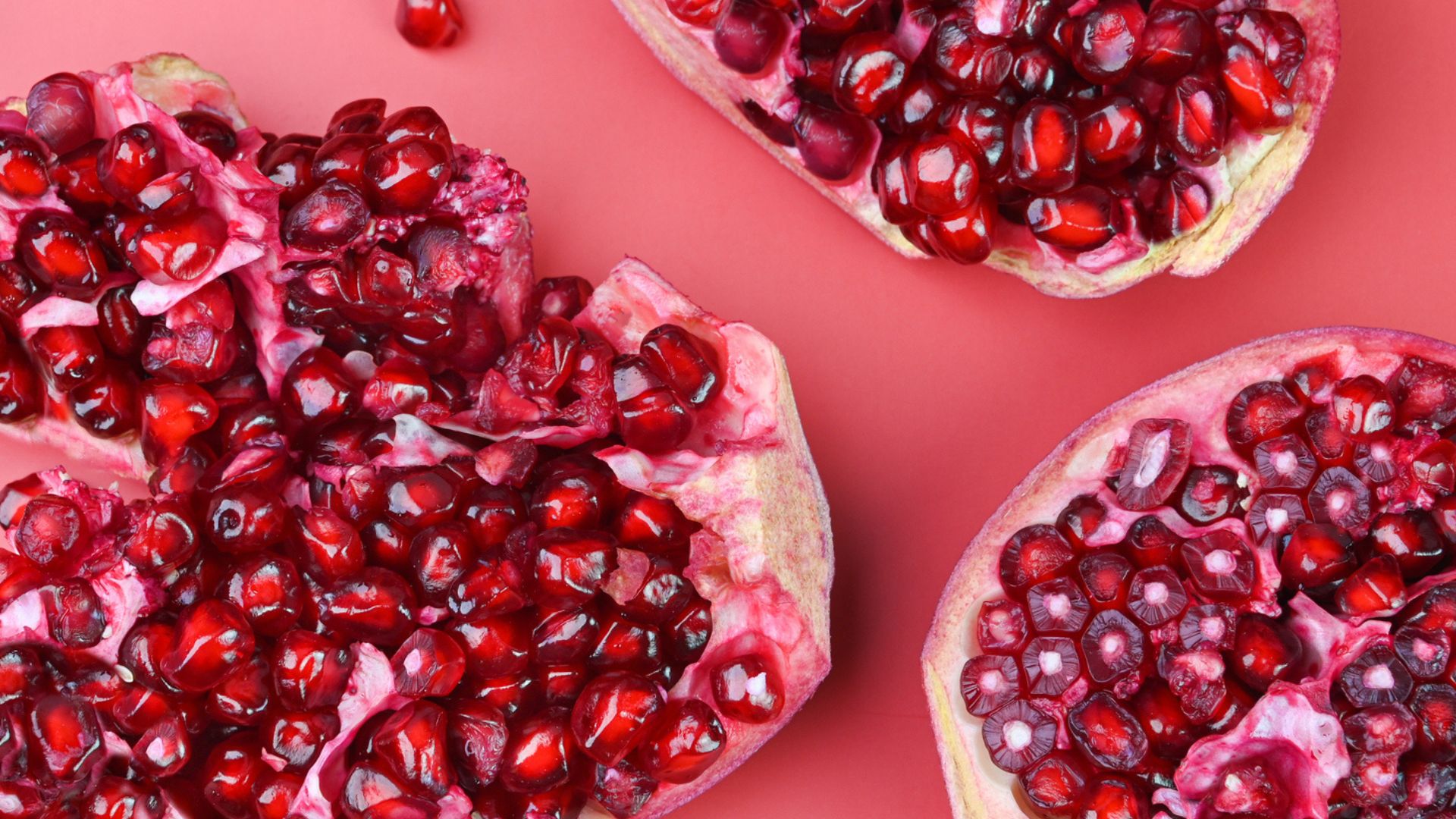
If you're struggling with any joint pain, adding a light scattering of pomegranate seeds to your morning porridge could help your symptoms as research suggests it's rich in punicalagins and punicic acid. In turn, this can help reduce symptoms of arthritis.
They have also been known to improve athletic performance as it's rich in nitrates, which help to dilute the blood vessels. So, this is a particularly good porridge topping for runners, cyclists, gym-goers, and anyone who does exercise regularly.
Beetroot
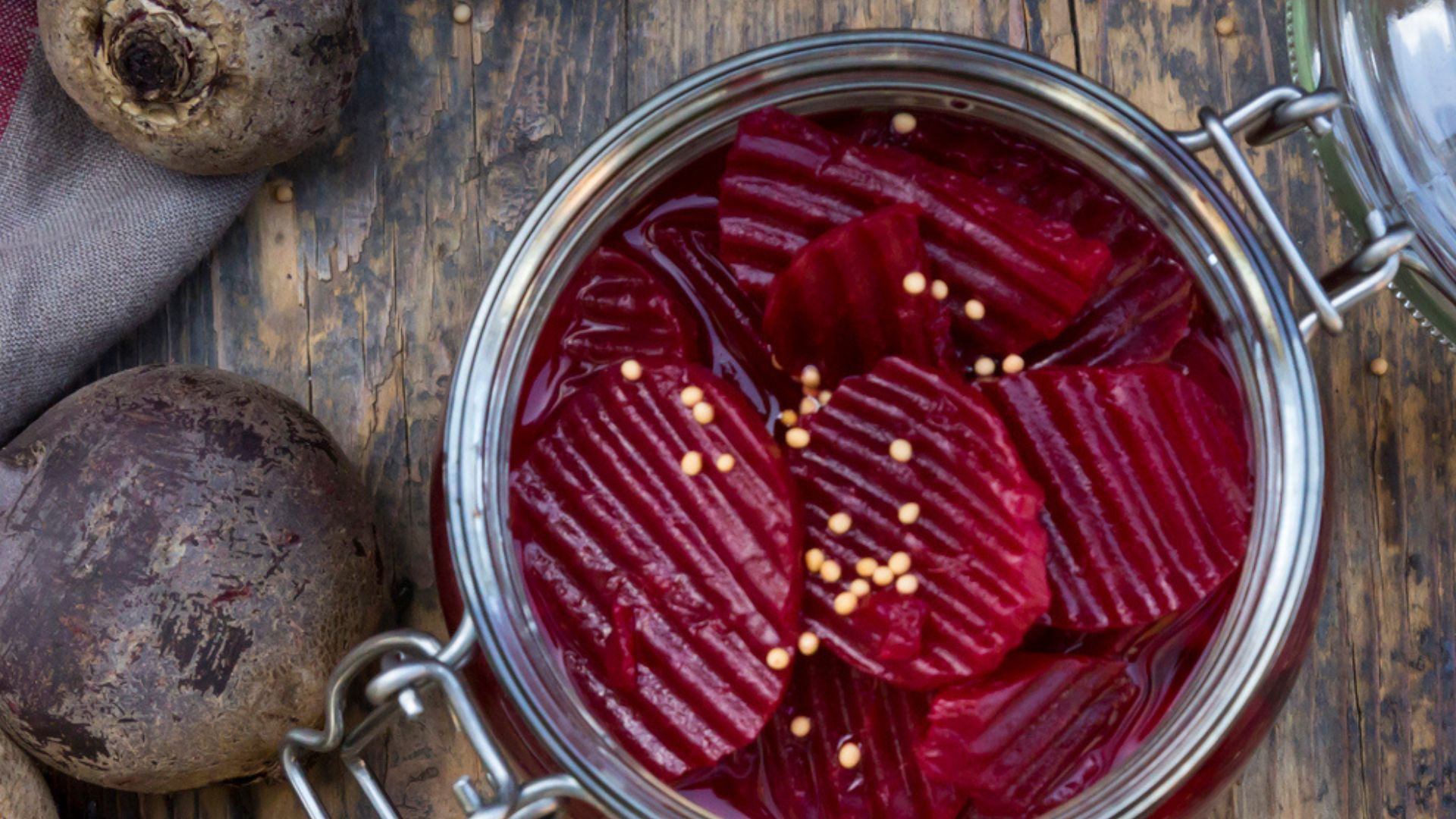
Beetroot, strange as it might sound, is one of the better porridge toppings. Much like pomegranate seeds, it can be particularly beneficial for those who do regular exercise, with researchers finding that those athletes who added beetroot to their regime experienced improvements in endurance and recovery times.
Even if you don't do regular exercise, the suggestion is that a few slices of beetroot every day can help you maintain your energy levels throughout the day and recover from whatever physical stresses you go through.
Beetroot is also rich in short-chain fatty acids, which are known to help with digestive health and regular bowel movements. To make it porridge friendly, cook your beetroot down with some honey to make a compote or paste.
Orange and ginger
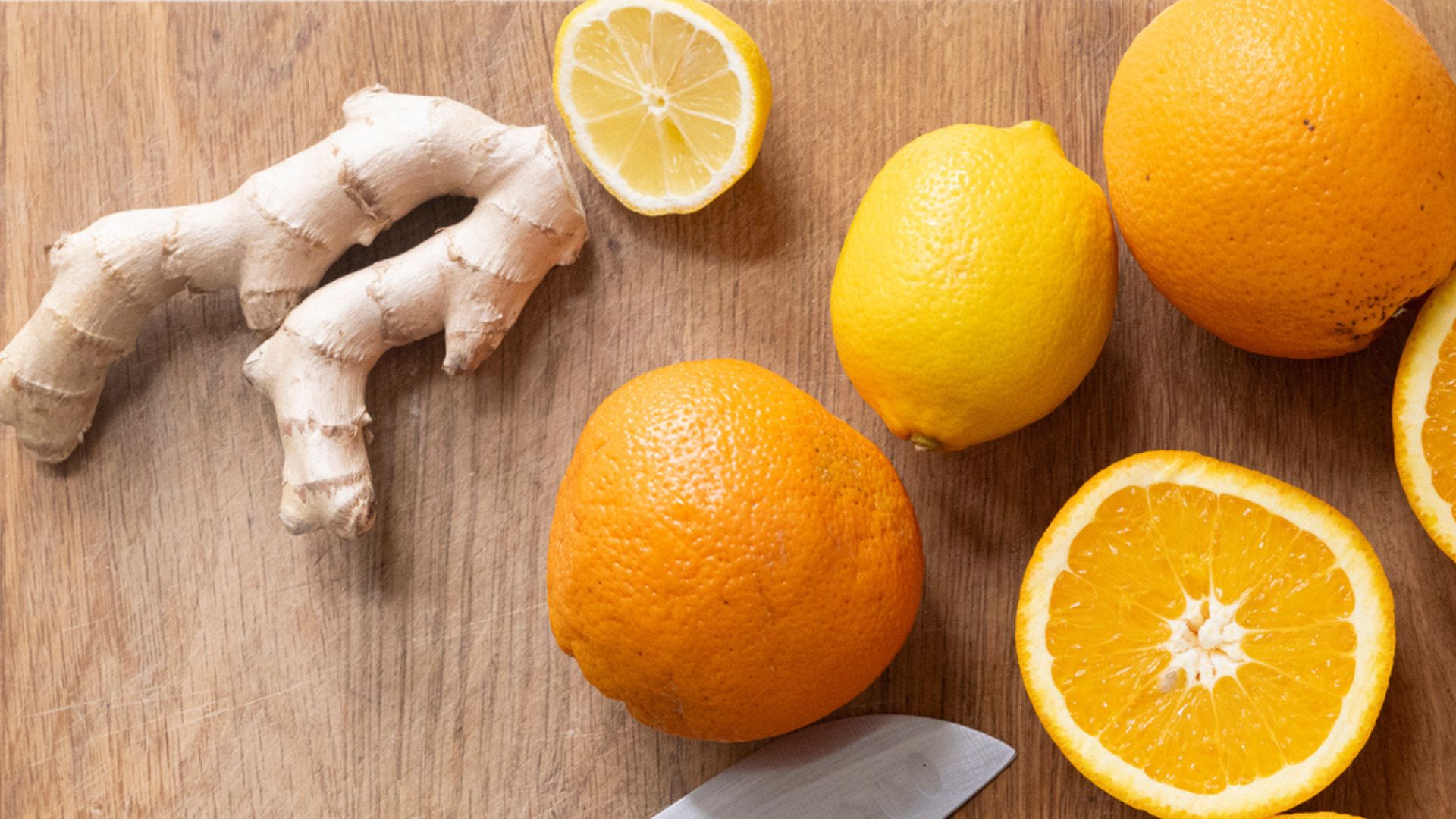
Orange and ginger have been used for millennia to combat colds and flu symptoms but it's a delicious flavour combination in itself, so if you're feeling a bit under the weather, it's worth adding this duo to your morning porridge.
Even if you're feeling fine, this combination is a good one - refreshing in flavour, it can help you wake up in the morning and boost your vitamin C levels.
Grated carrot
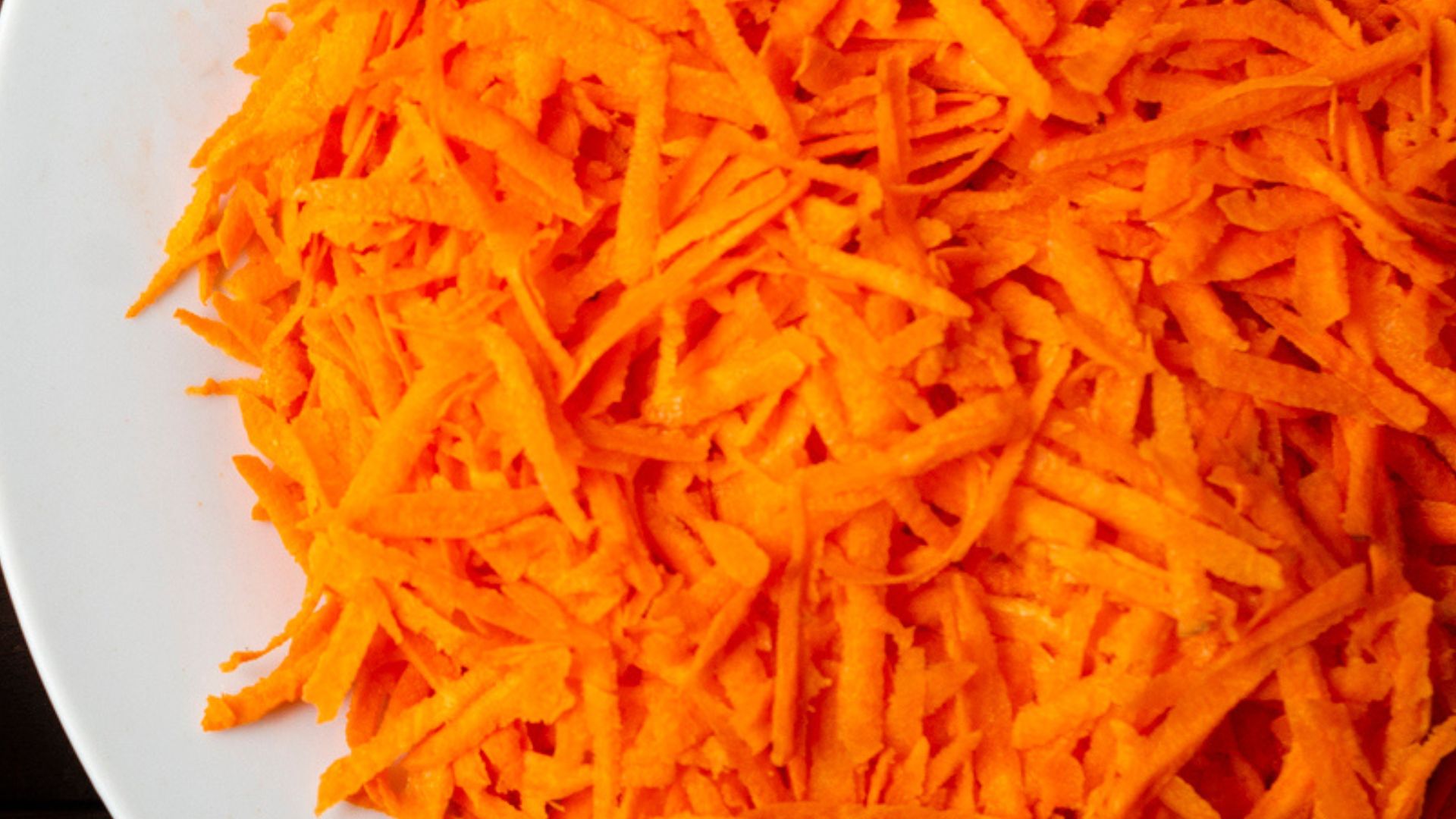
Grated carrot is an excellent topping for porridge, especially when combined with a natural spice or sweetener, such as nutmeg.
The idea that carrots improve vision isn't a myth either - they are rich in beta carotene, a compound the body uses to make a type of vitamin A that helps eyes to adjust in the dark.
Powdered nutmeg
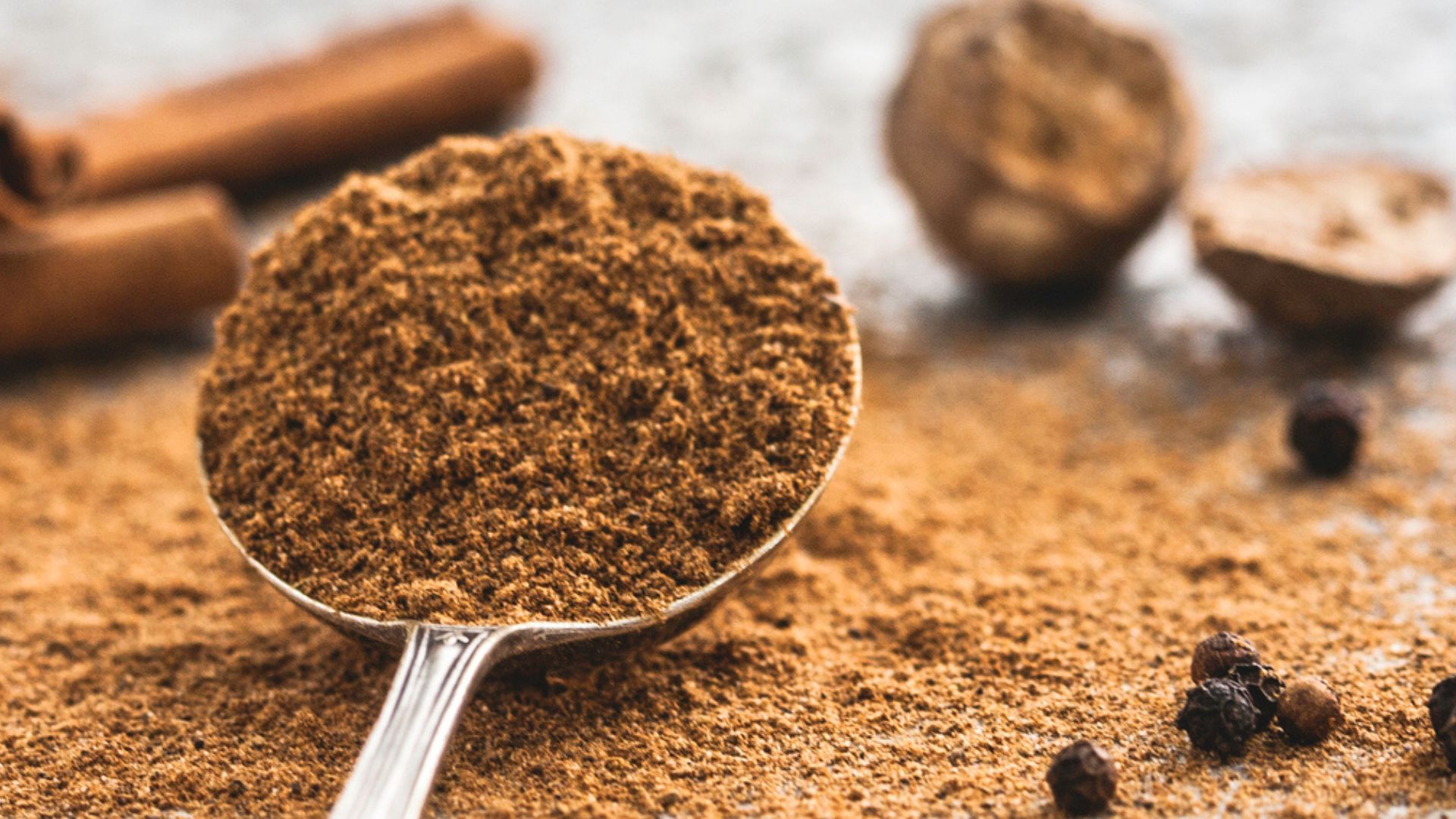
Powdered nutmeg is one of the easiest porridge toppings to add - tasting of almost nothing if you don't add very much, while offering lots of health benefits.
Nutmeg has been found to relieve pain and inflammation, soothe the digestive system, detoxify the body, strengthen cognitive function, and reduce insomnia - what's not to love?







